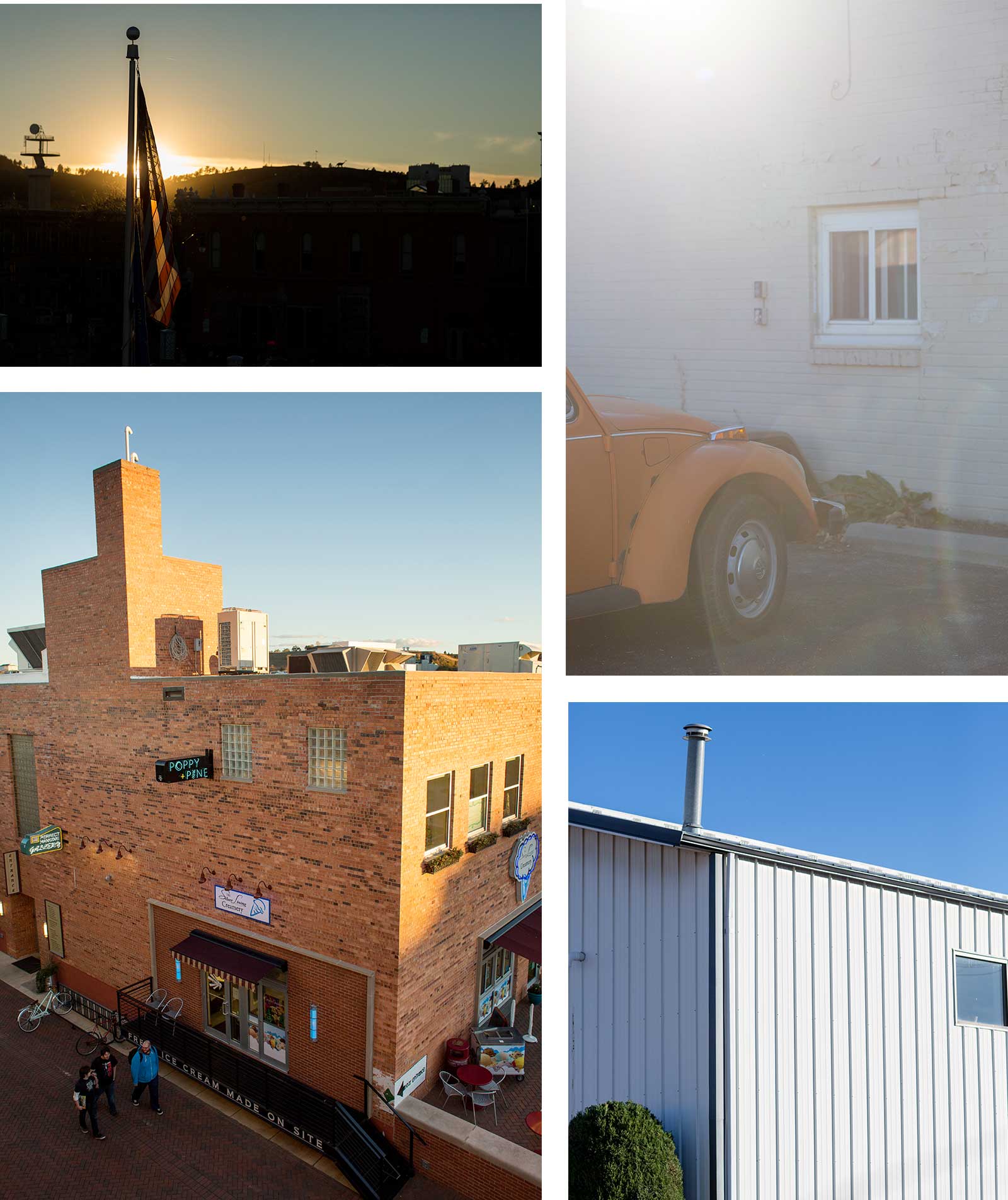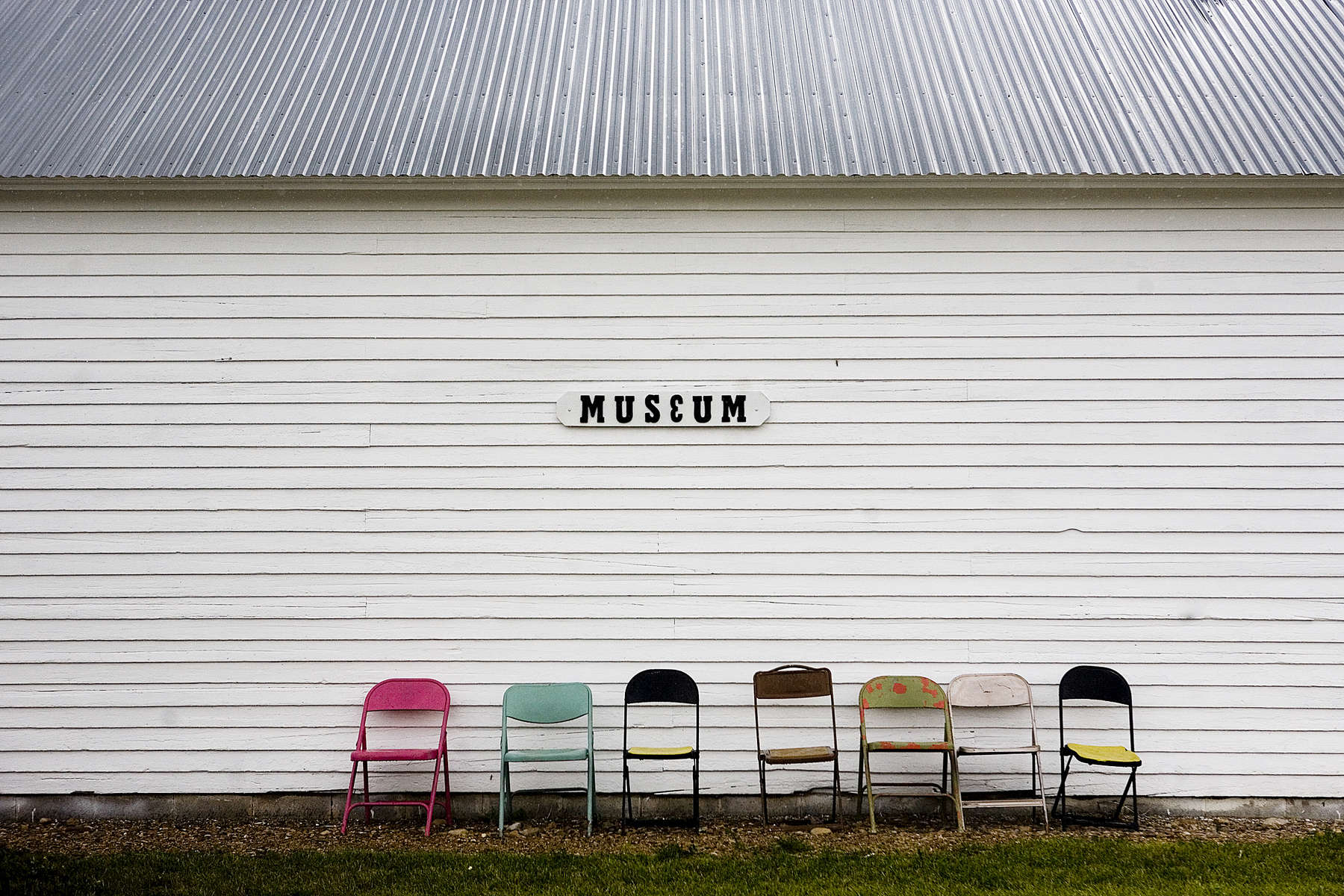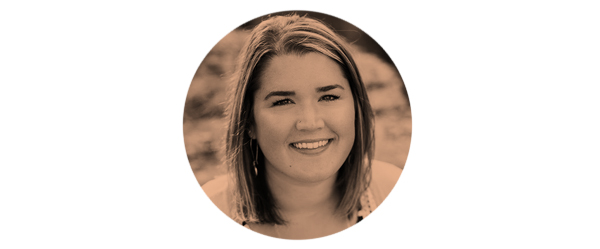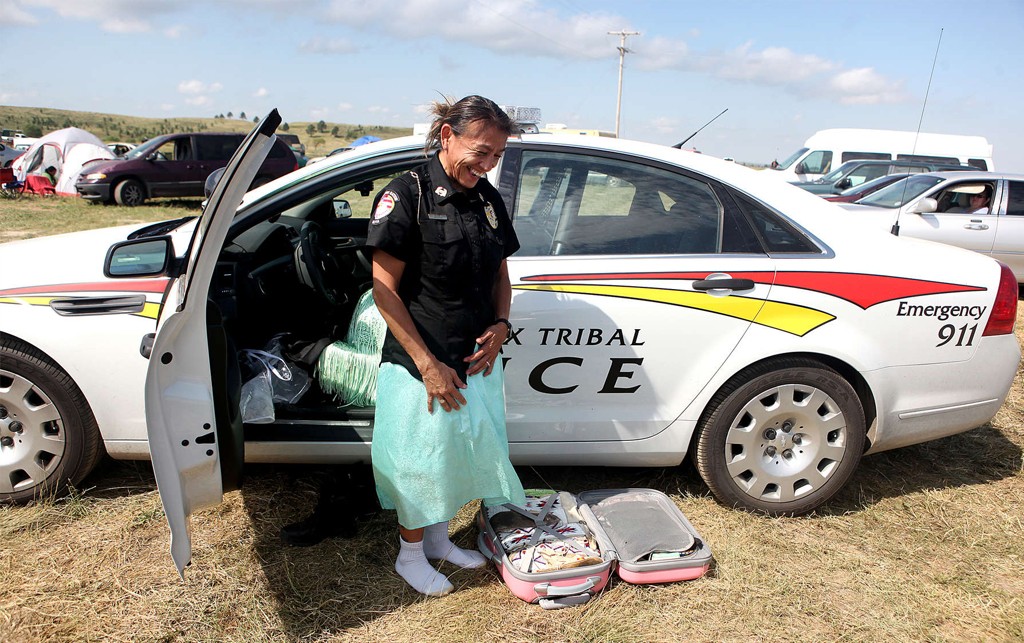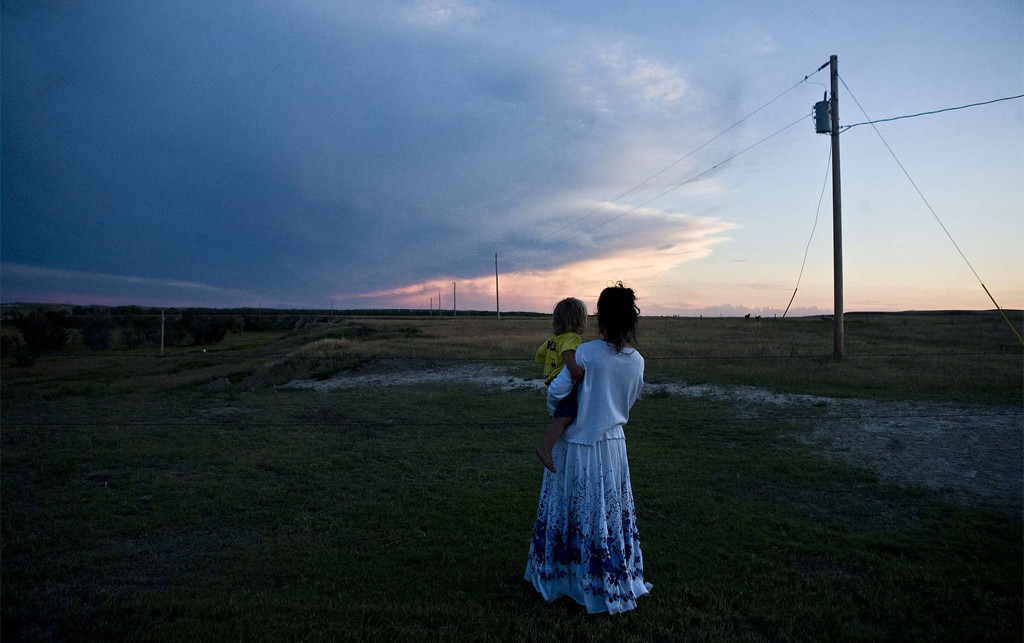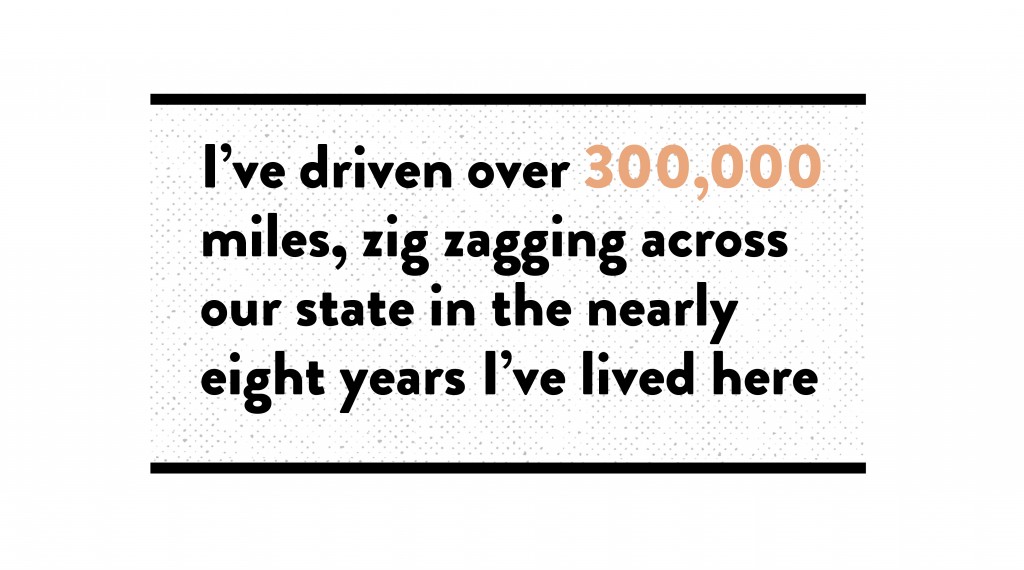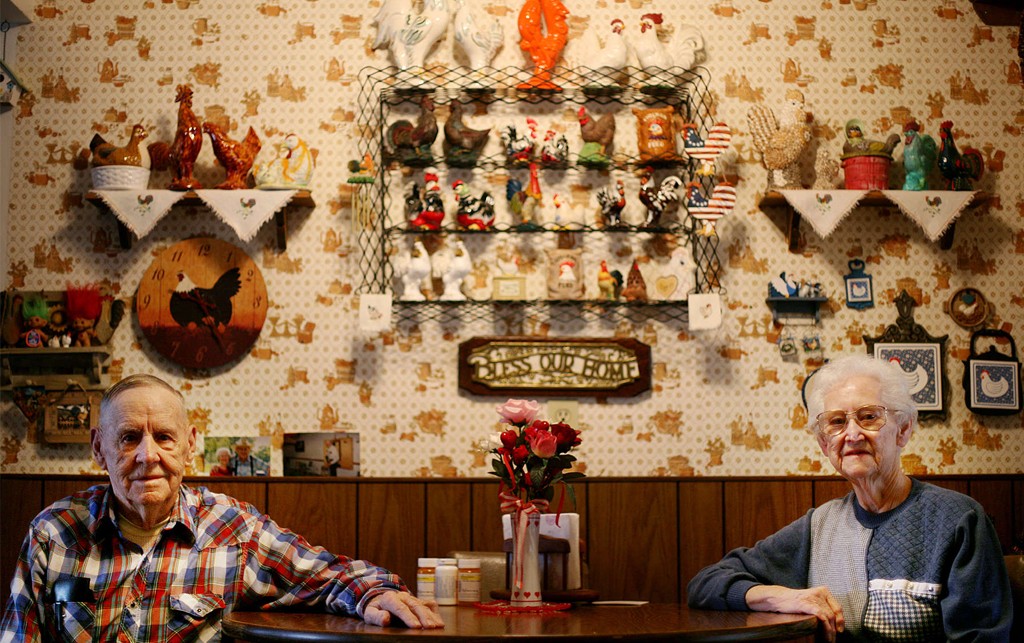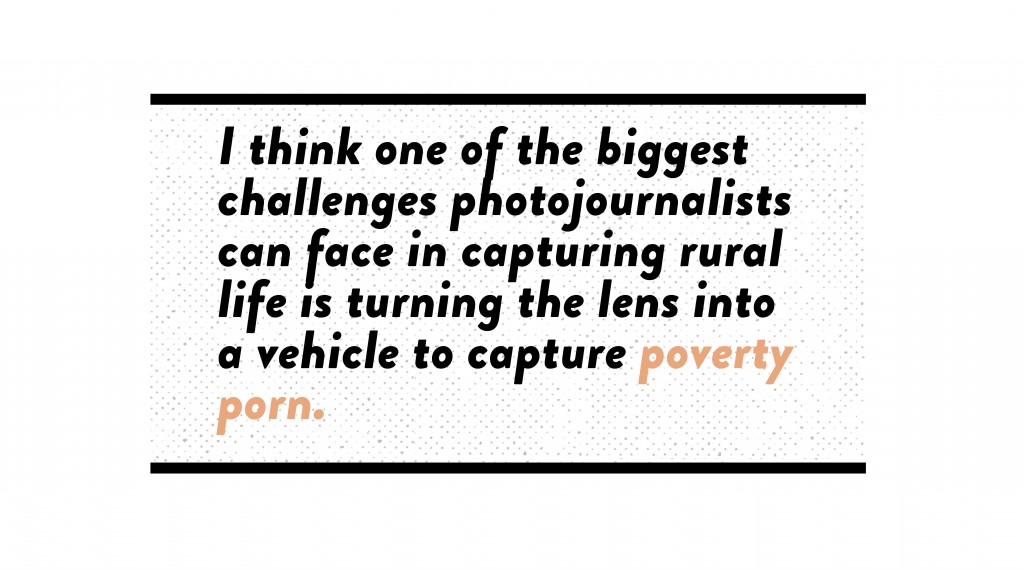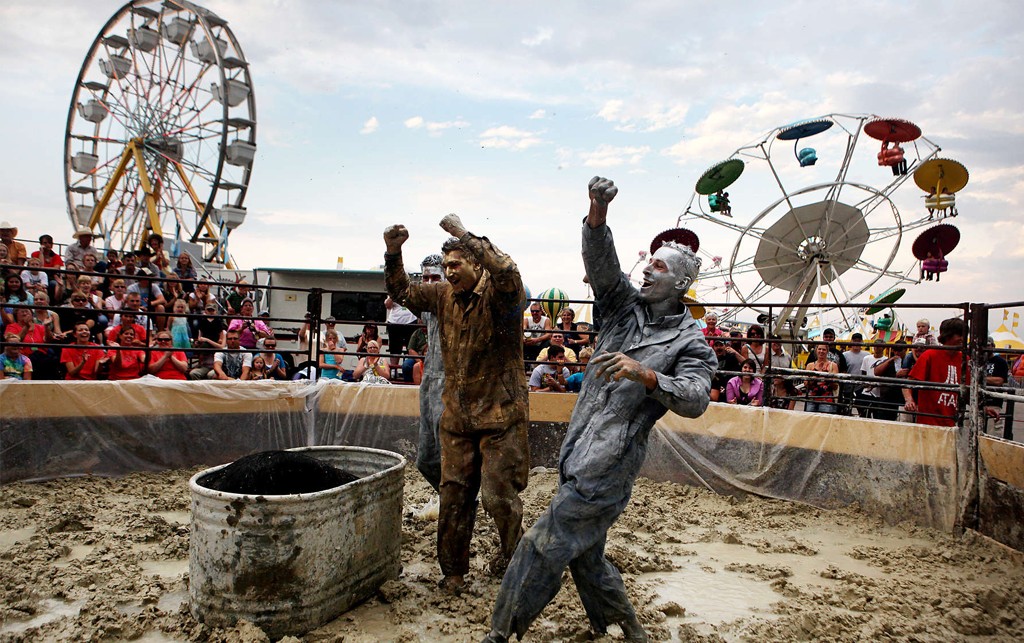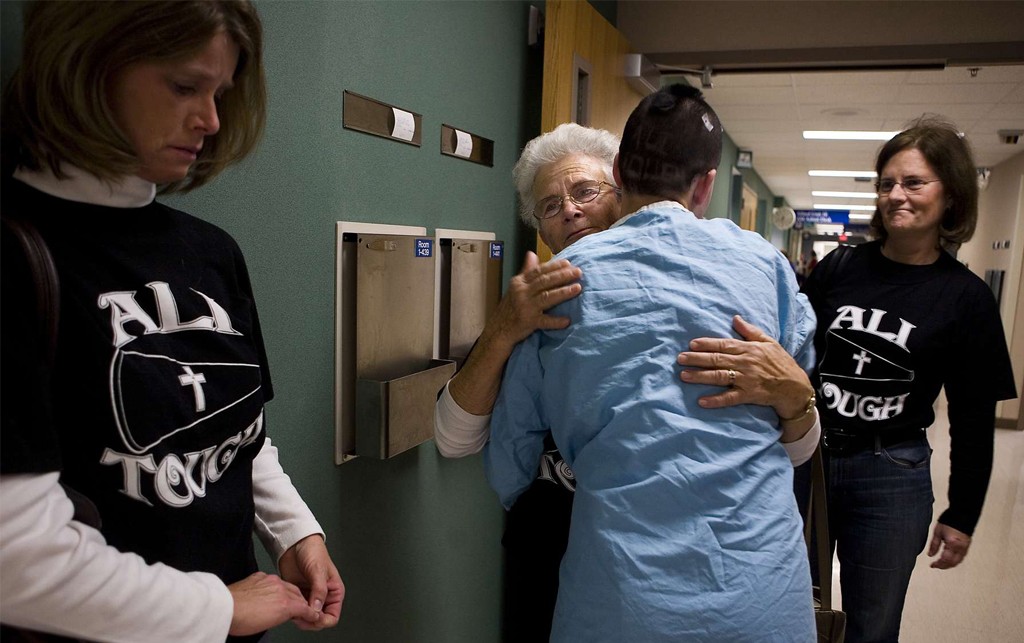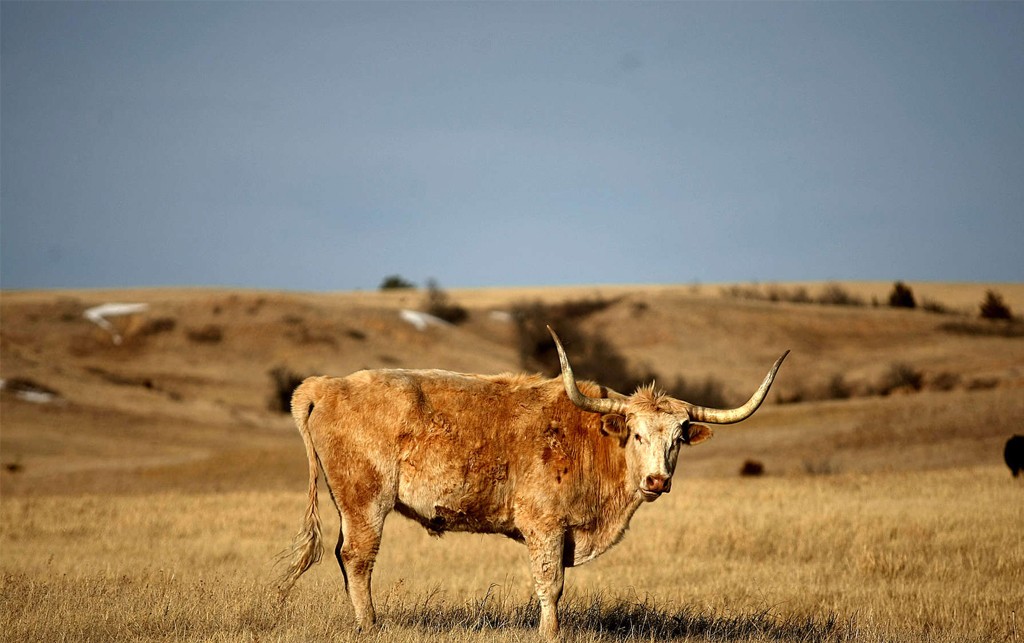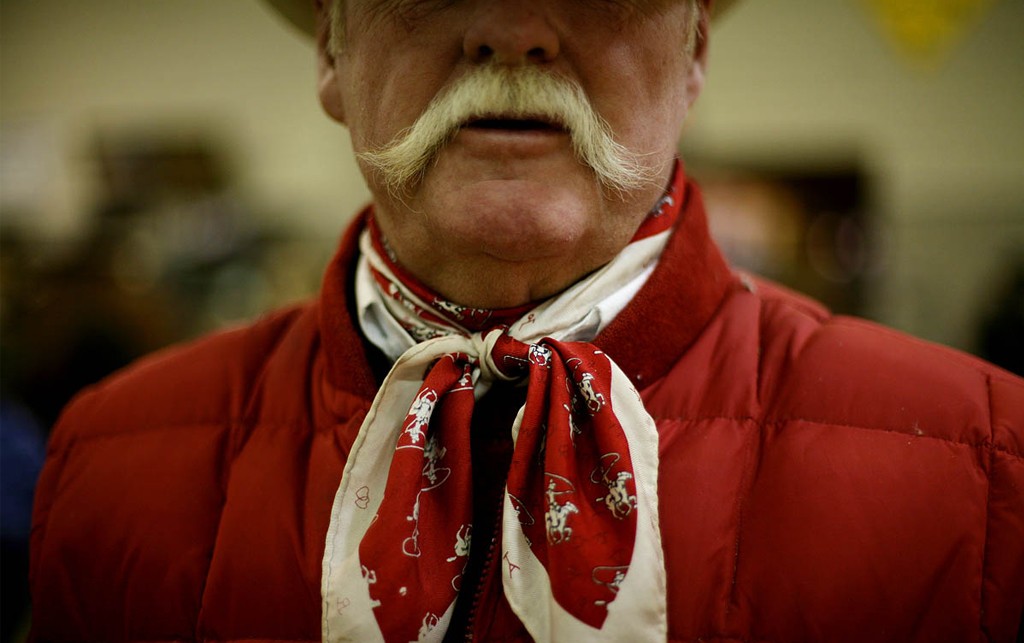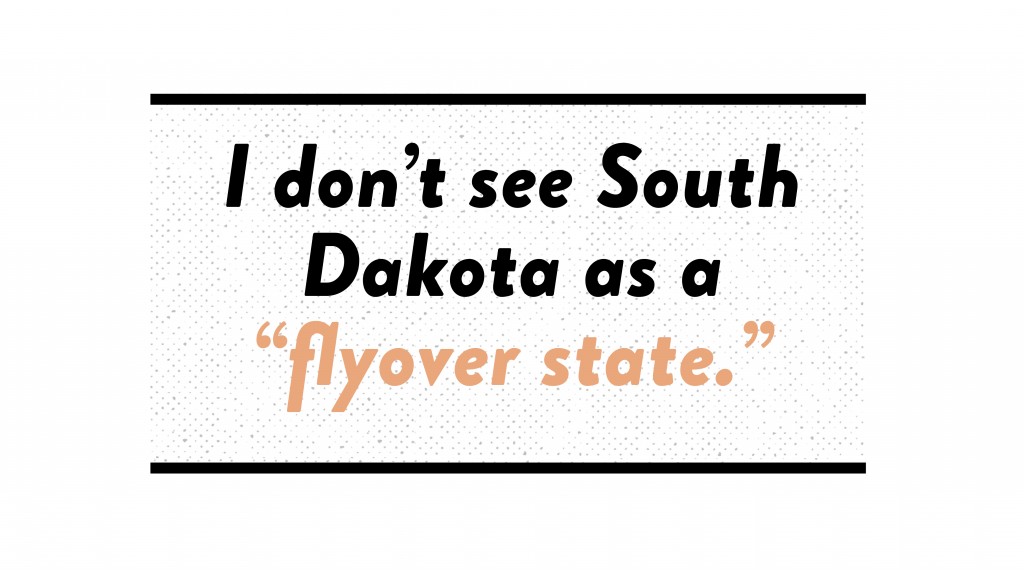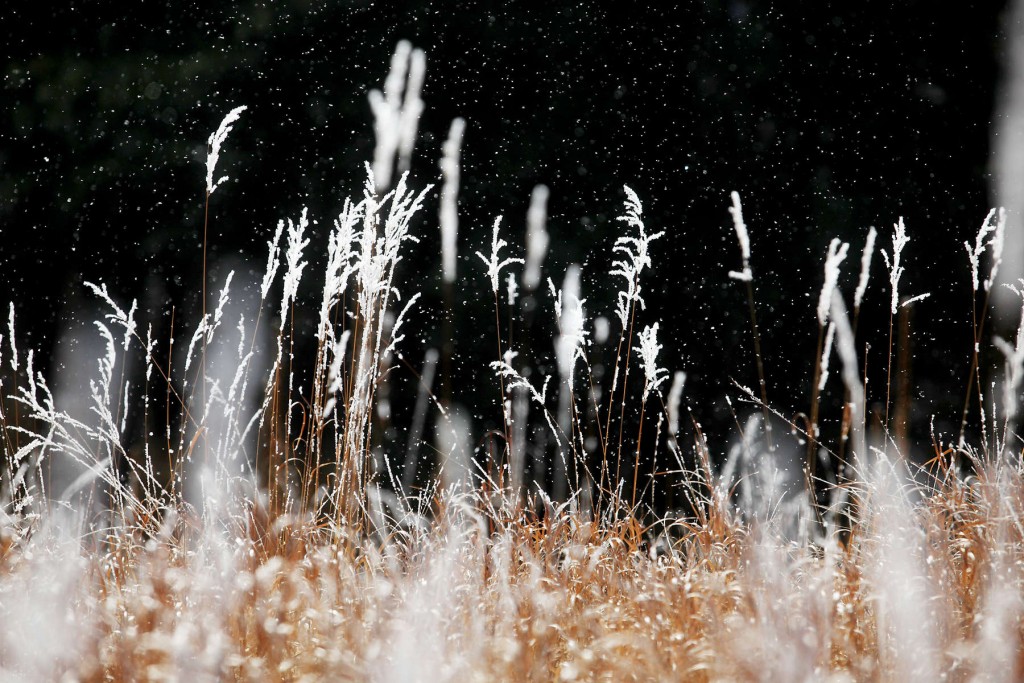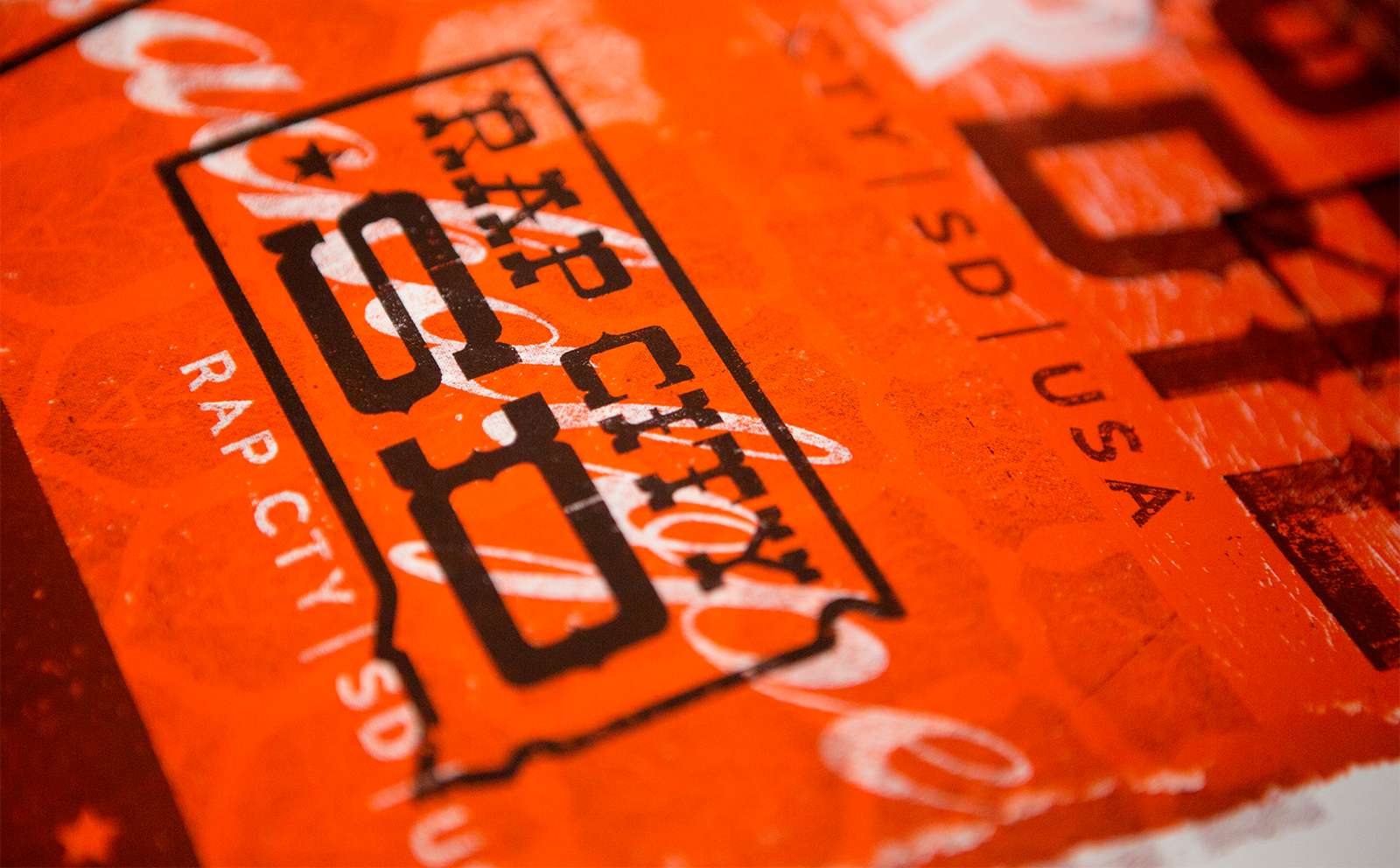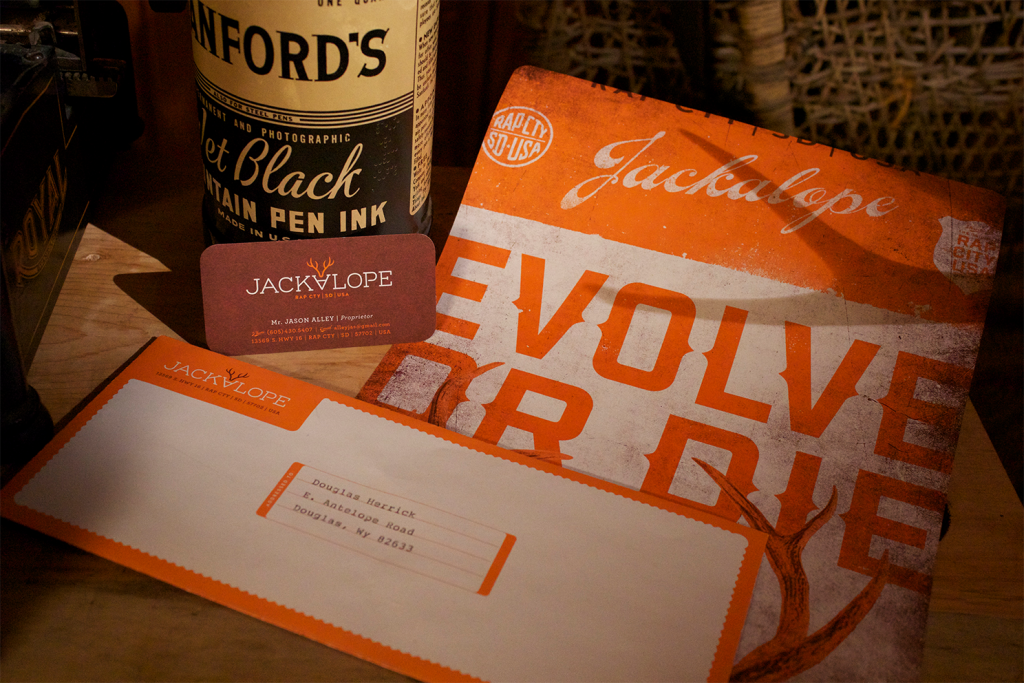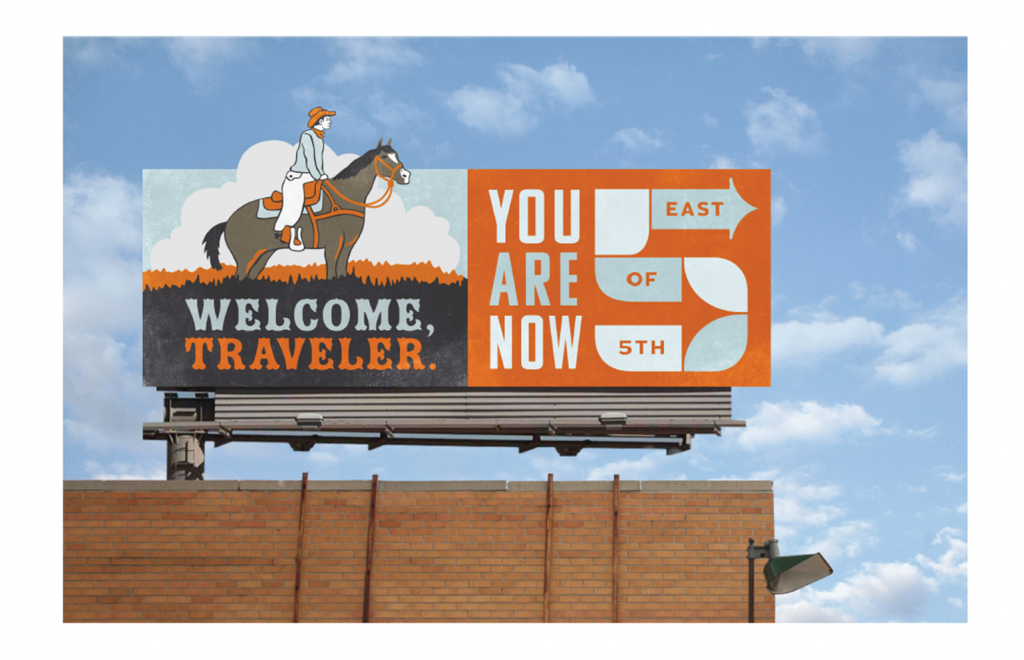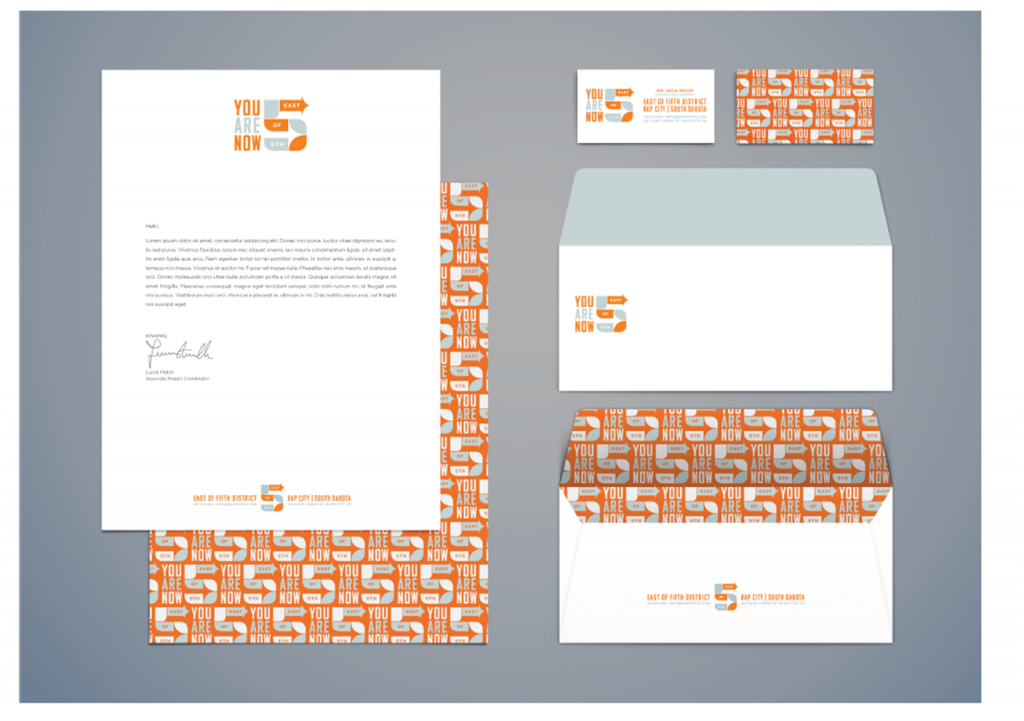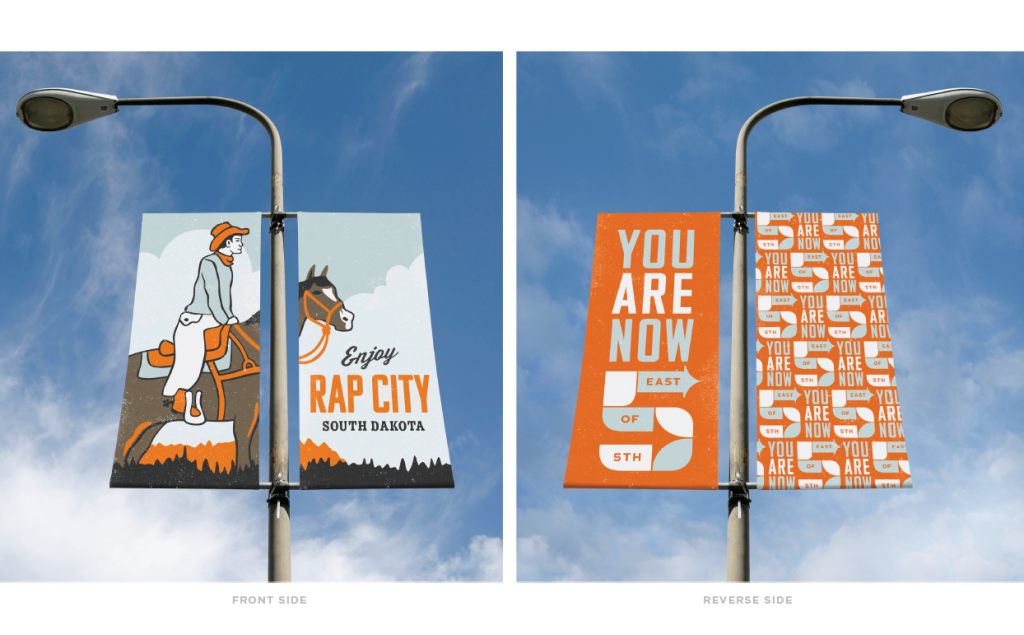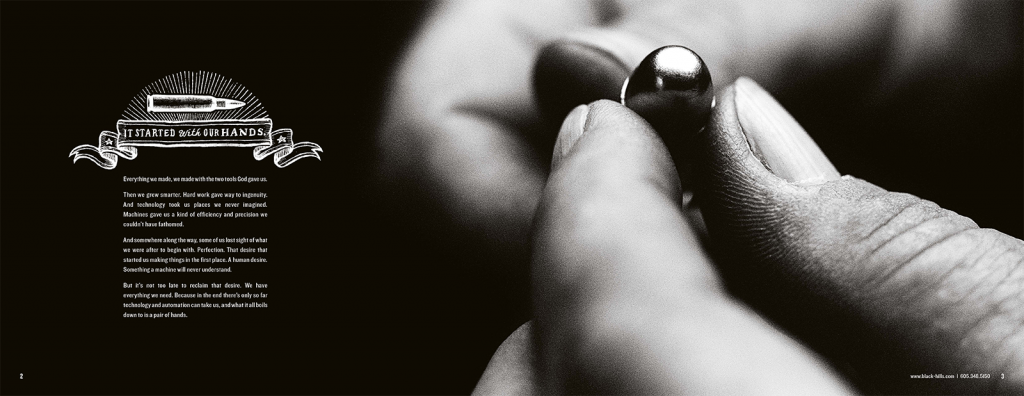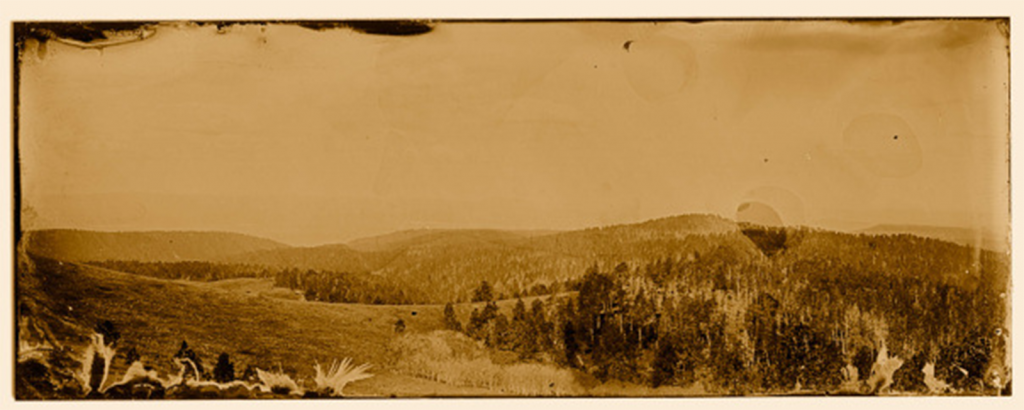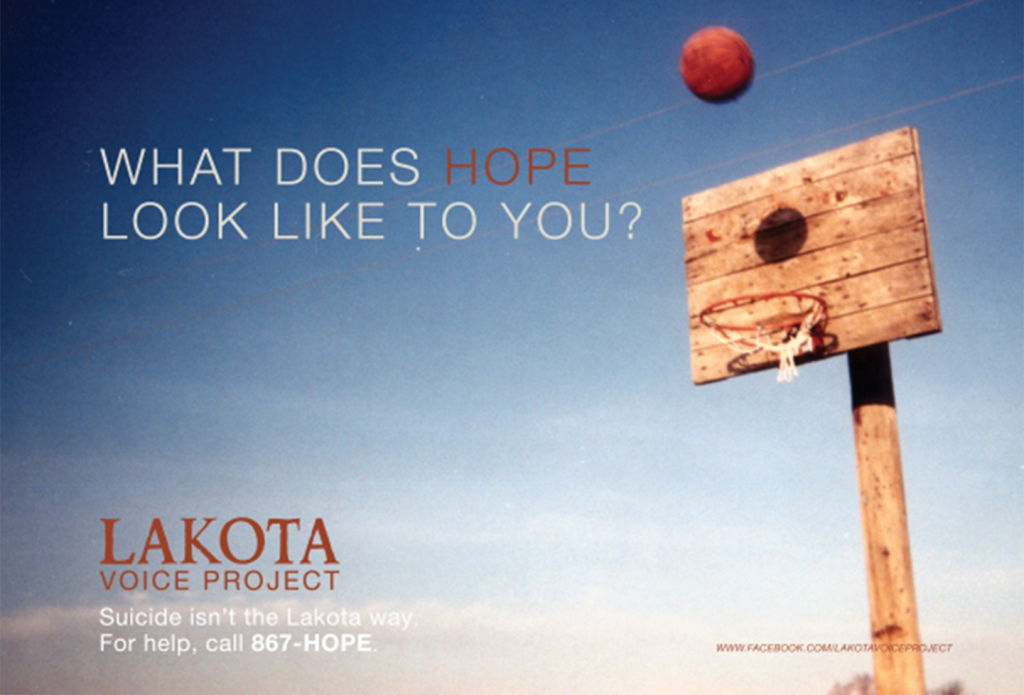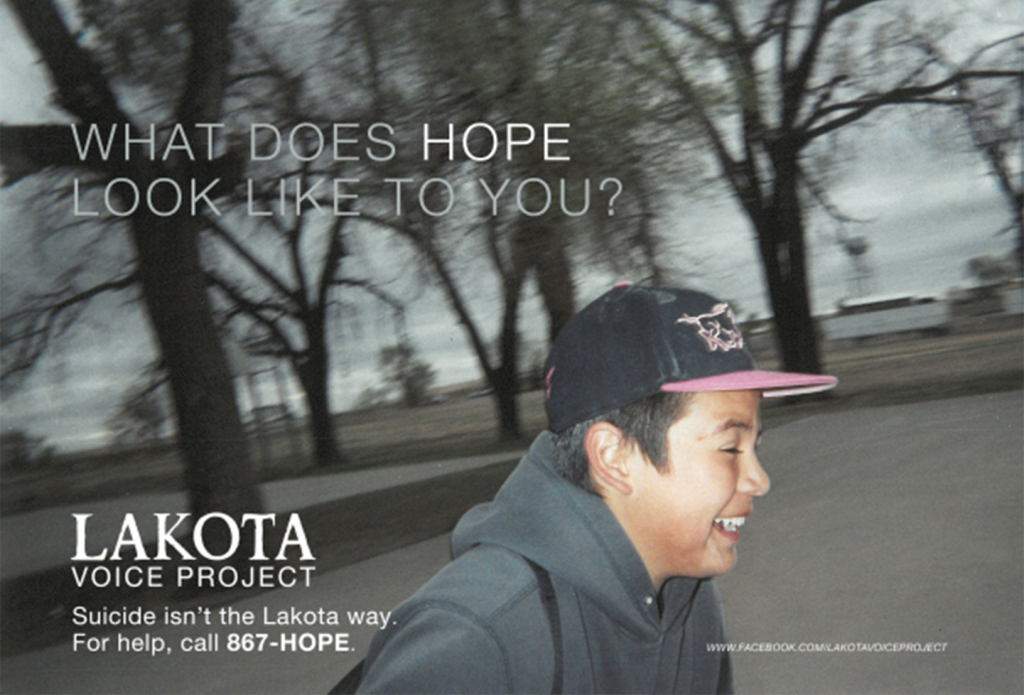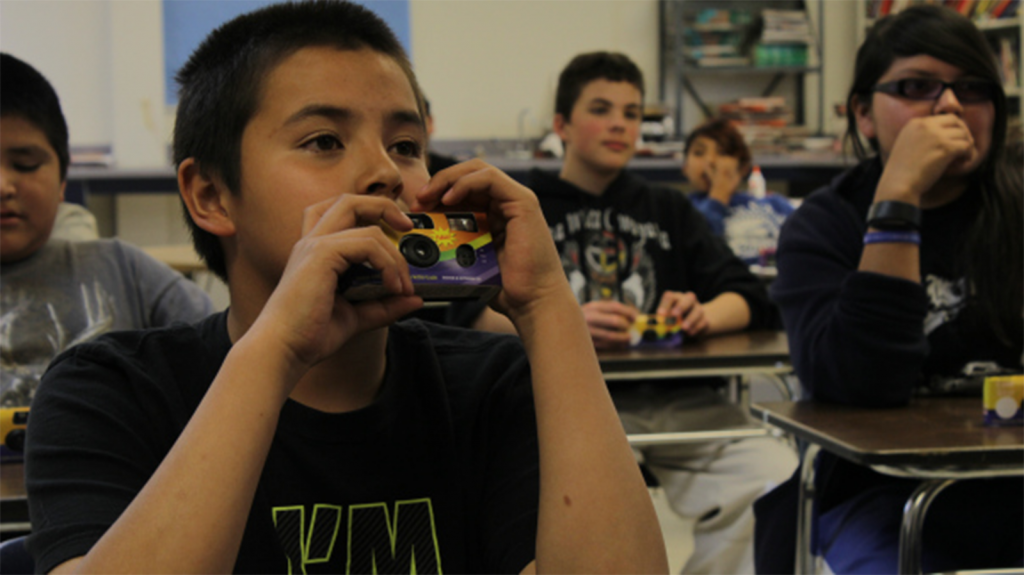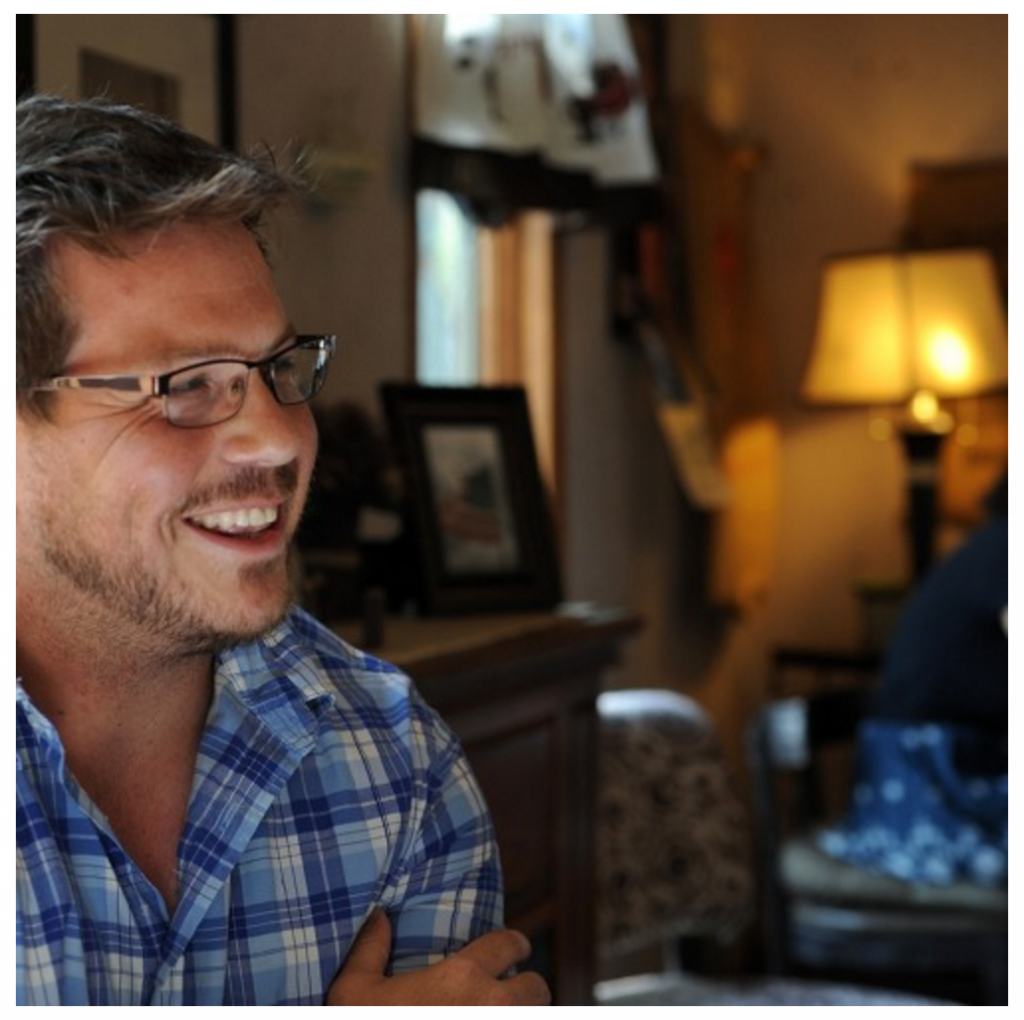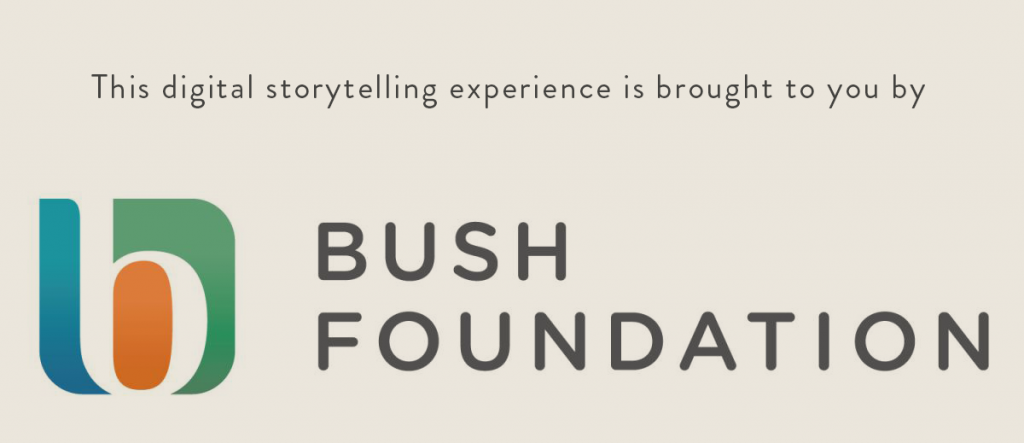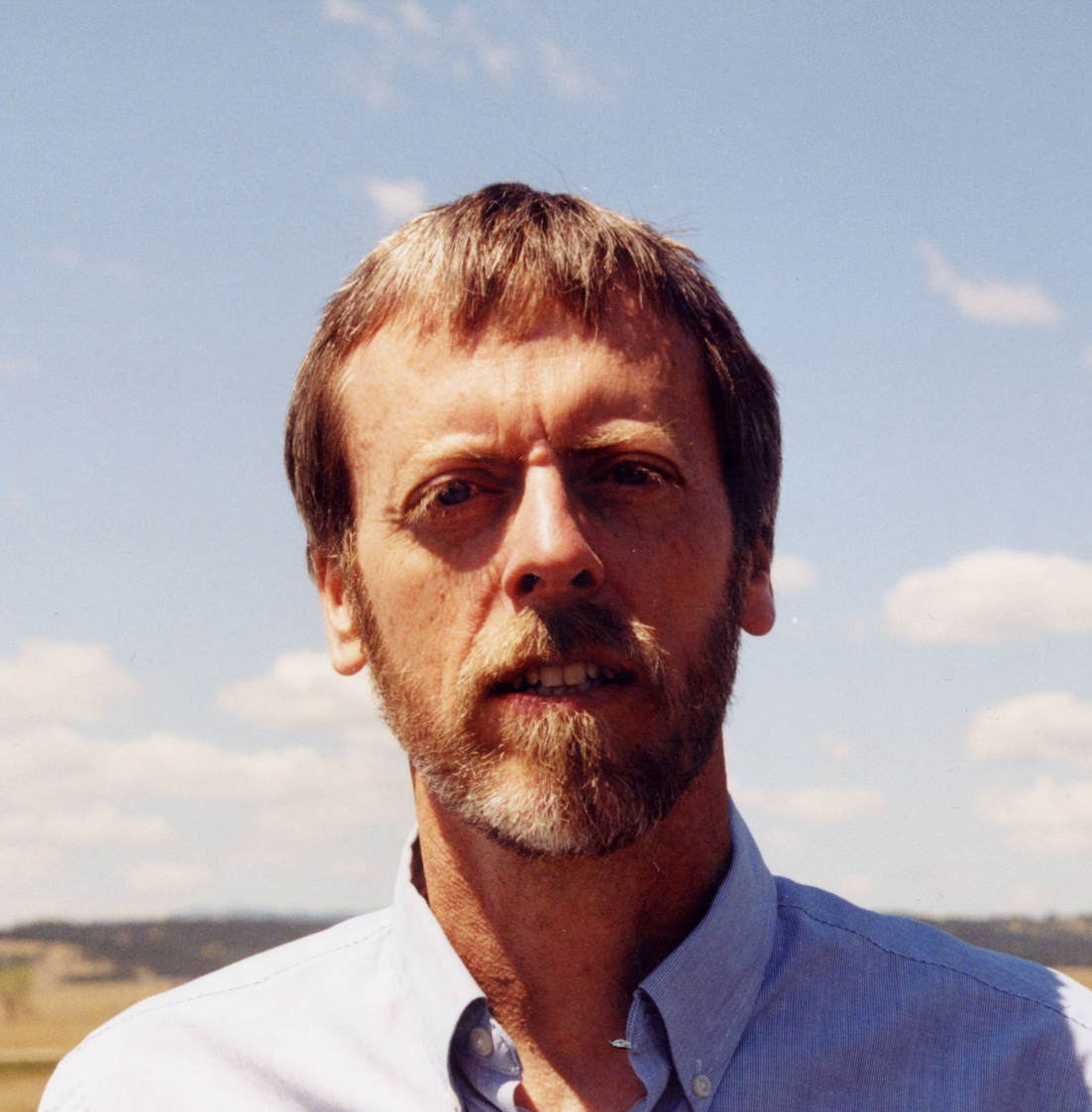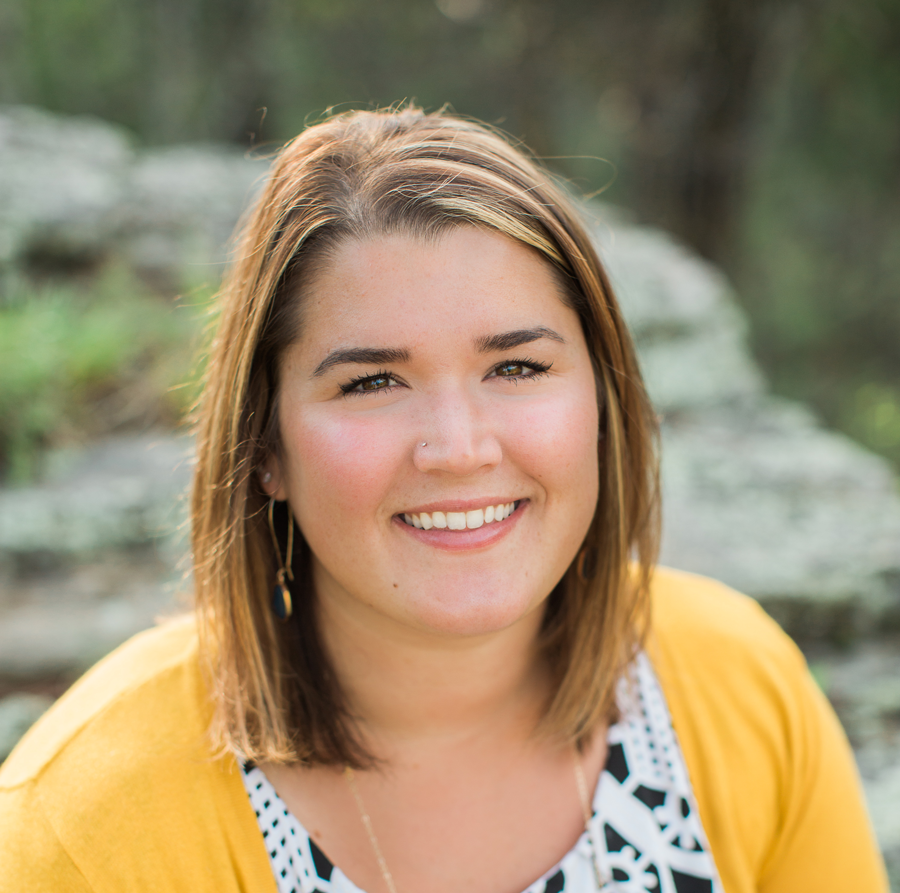
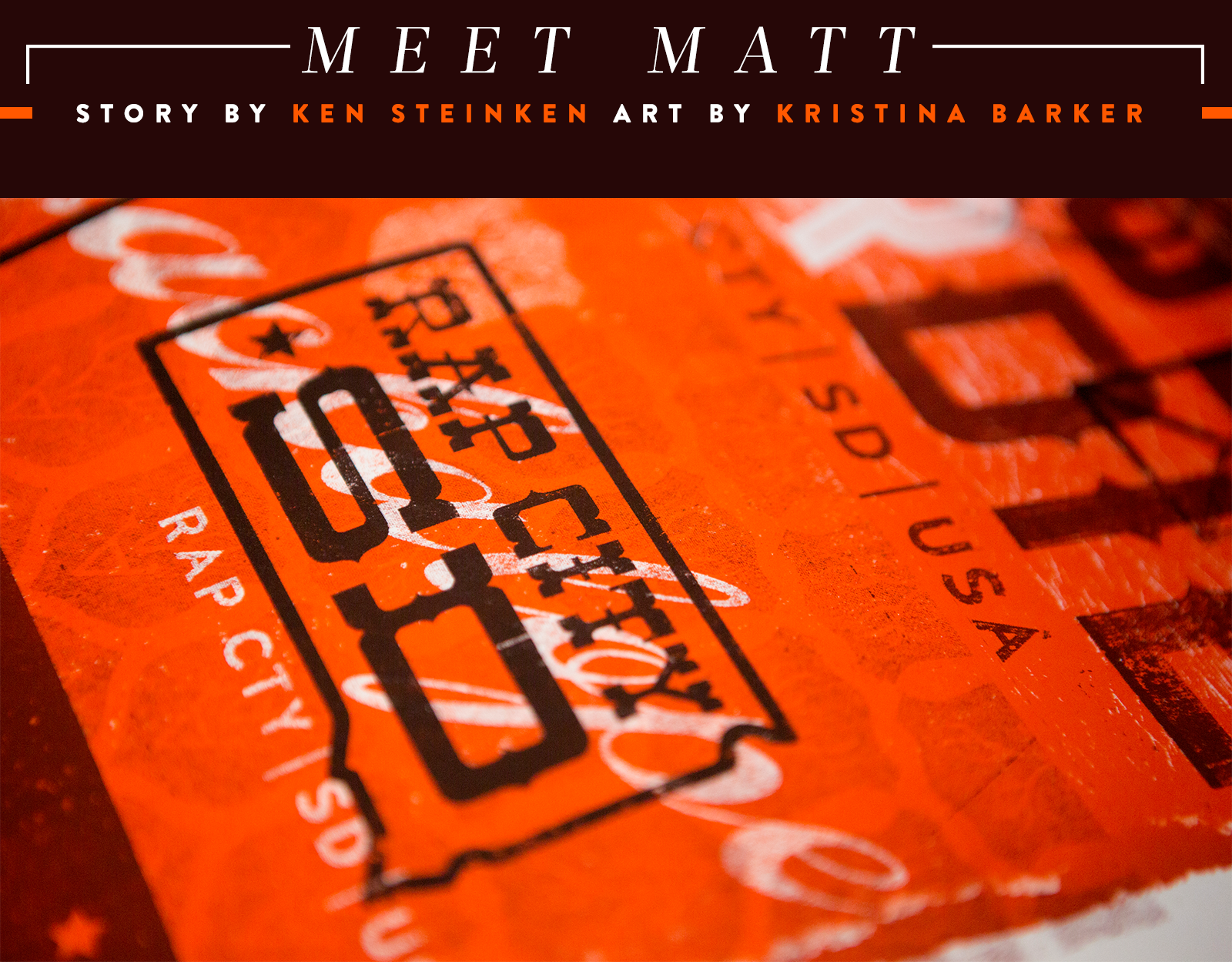
GOOD.
Matt Ehlman is a founder and a finder, driven to create community spaces for people who are hungry to become a part of something that’s good. He sure has his hand in many of the good things happening in South Dakota. No matter where you live, you’ll learn from his Notes for New Nomads.
Welcome traveler. We have been waiting for you. We have been waiting for your hands and your head to join us. Together we will cut and paste and re-purpose everything around us. Dust off the old and weld it to the new. We have everything we need and are just ignorant enough to believe that everything is possible. You are now east of fifth. Welcome to Rapid City, South Dakota.
—Manifesto for the East of 5th District in Rapid City, South Dakota.
Composed by Jason Alley of Jackalope Studios.
|
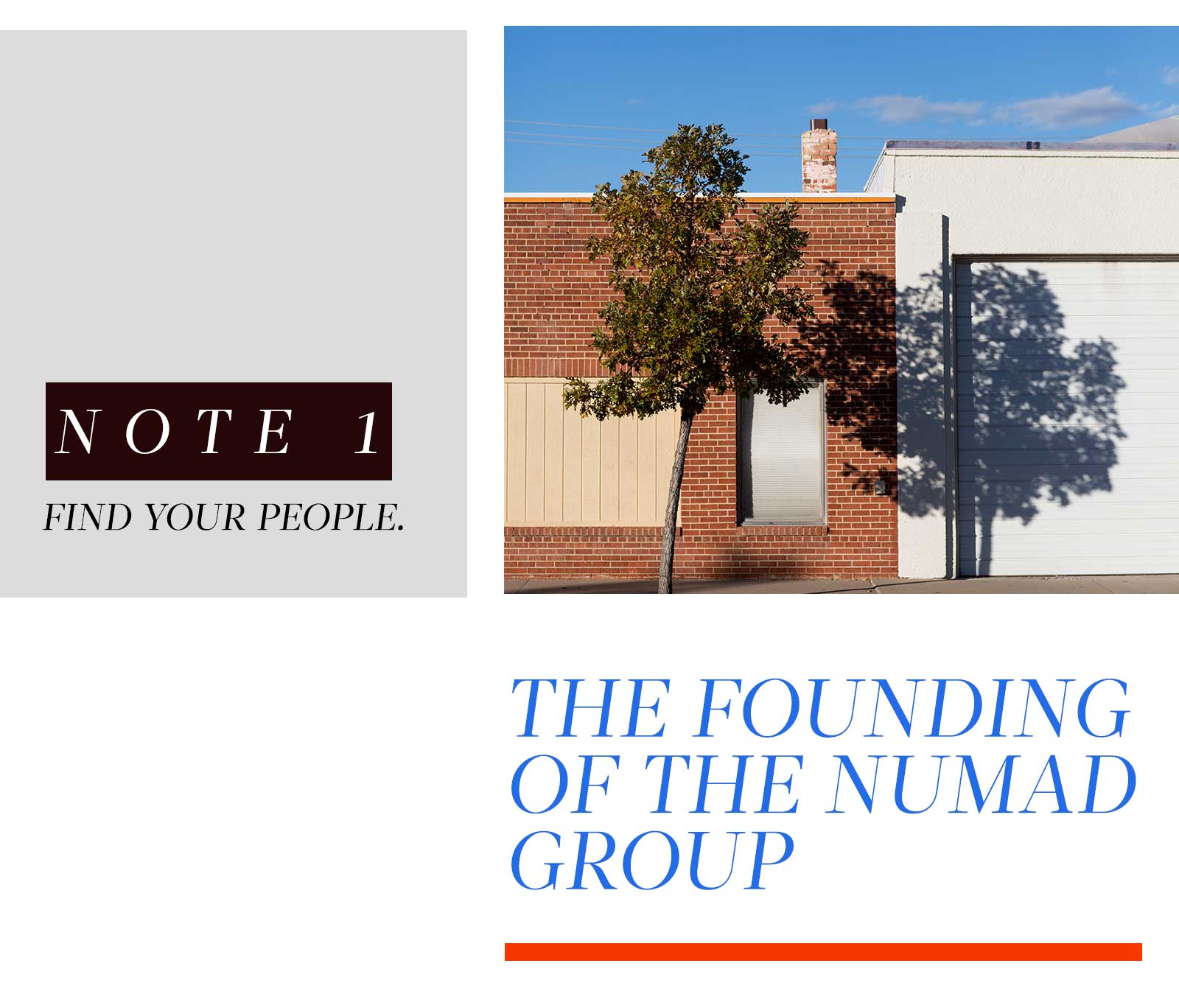
att Ehlman moved to the Black Hills in 2002 to volunteer at Red Cloud Indian School, which was founded by Jesuit priests on the Pine Ridge Indian Reservation in 1888.
When Matt became vice president for advancement in 2006, he hired on Kerry Brock and Ted Stephens III, friends from his undergraduate and masters studies. Together, they set out to overturn the planned deficit and launch a capital and endowment campaign. Working with Red Cloud staff they raised $12 million to cover the school’s annual budget. During a five-year period they helped generate a 44 percent increase over the previous five years.
When they left Red Cloud, they wanted to continue to work together from afar: Ted from New York City, Kerry from Kentucky, and Matt from Pine Ridge. They got to thinking that they made a pretty good team and could help other nonprofit organizations with their funding and communication needs. So they created The Numad Group.
The name blends into a single word a term coined in a 2008 issue of The Economist – New Nomads. This refers to a socially-conscious generation who works to turn dreams into reality no matter where they find themselves – a coffee shop, a boardroom or an airport.
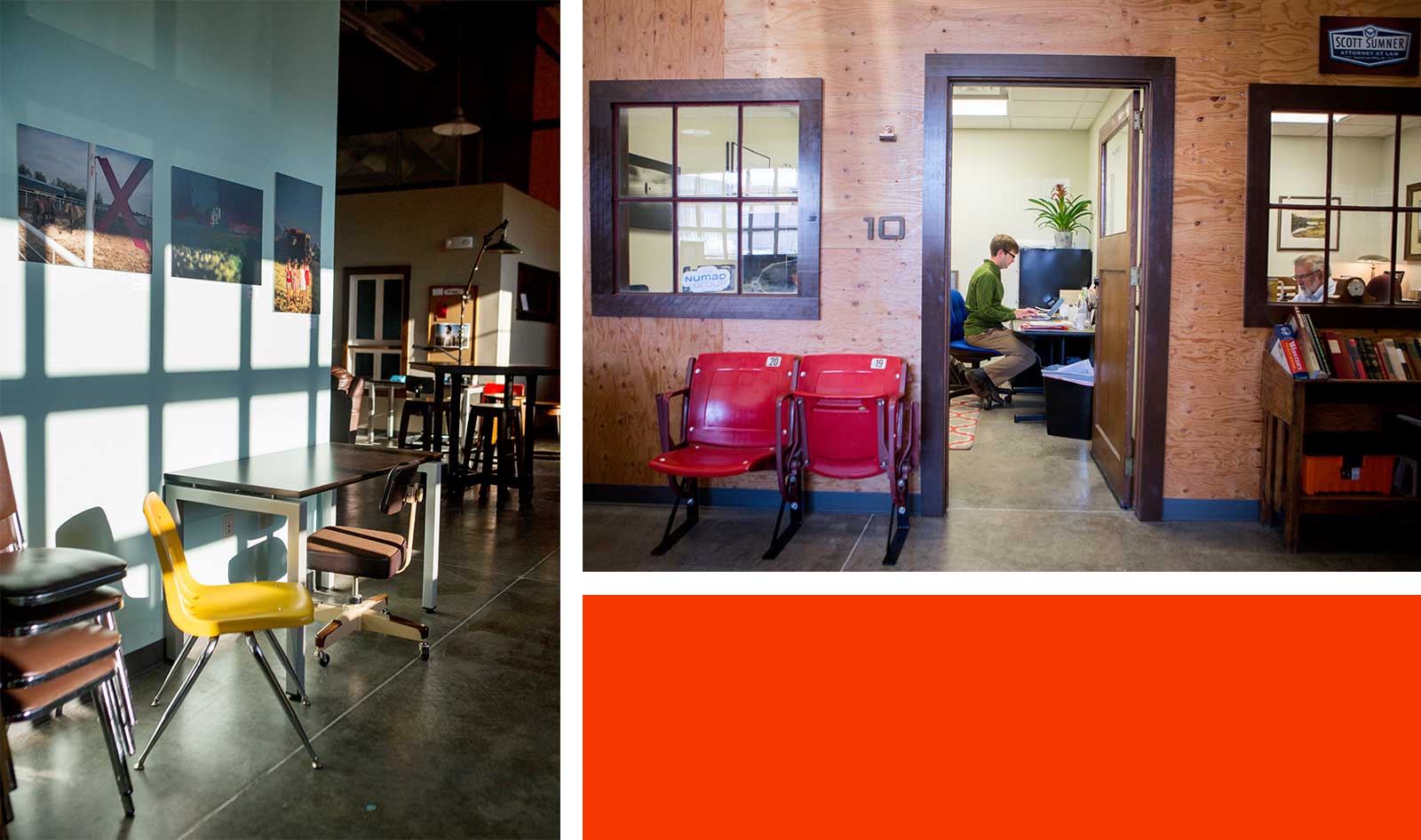
The fact that the trio lives in three far-flung states has never been an obstacle. They conduct business by cell phone, computer and occasional face-to-face meetings. But the time they spent together working for the people on the Pine Ridge Indian Reservation significantly influenced their new enterprise.
“It was an experience that continues to form our approach for what we’re doing,” explains Matt. “It showed us the importance of community—the idea that people can come together and have different roles. And that people need the time and opportunity to step up and act in their good way.”
Initially, The Numad Group worked with nonprofit organizations to help them tell their stories, find people who would be interested in them, and raise funds to do what they do. They only signed on with “inspired” nonprofits who they considered committed to positive change in their communities. Those places ranged throughout western South Dakota, around the United States, and across the seas.
The commitment to creating community soon grew beyond helping others do it through nonprofits.
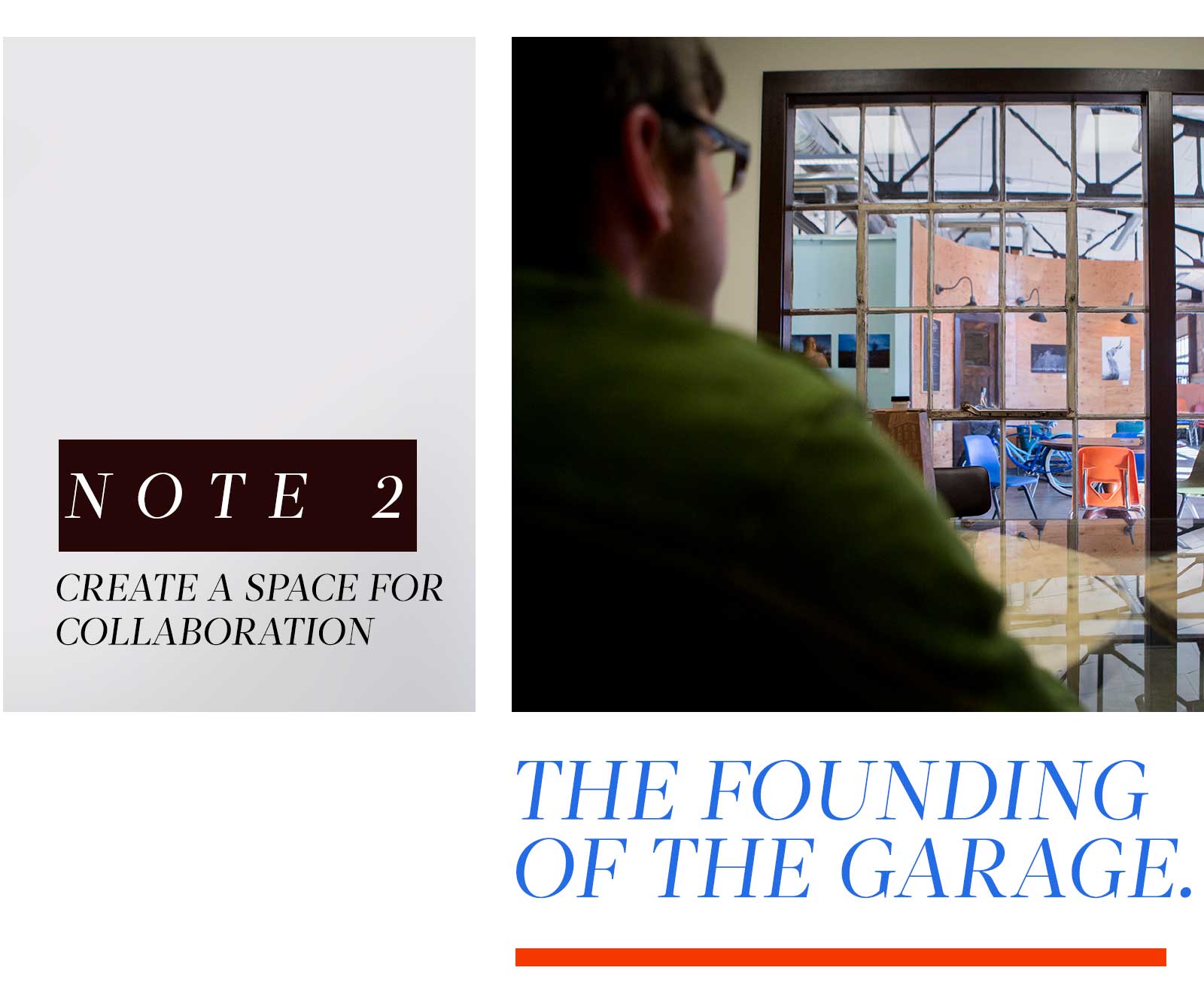
“There’s a lot of evidence that all of us have a desire to be a part of something,” says Matt. “Because Kerry, Ted, and I work remotely, we know firsthand the desire to have community.”

he group decided to look for a property where they could create a community for numads known as a co-working space – an office center where people can buy a membership to use a desk or an enclosed office for a day, month, or year. Matt found a property east of 5th Street in downtown Rapid City – The Motor Service Building. The Numad Group teamed up with a local property developer with experience rehabbing historic buildings and opened The Garage in September 2014.
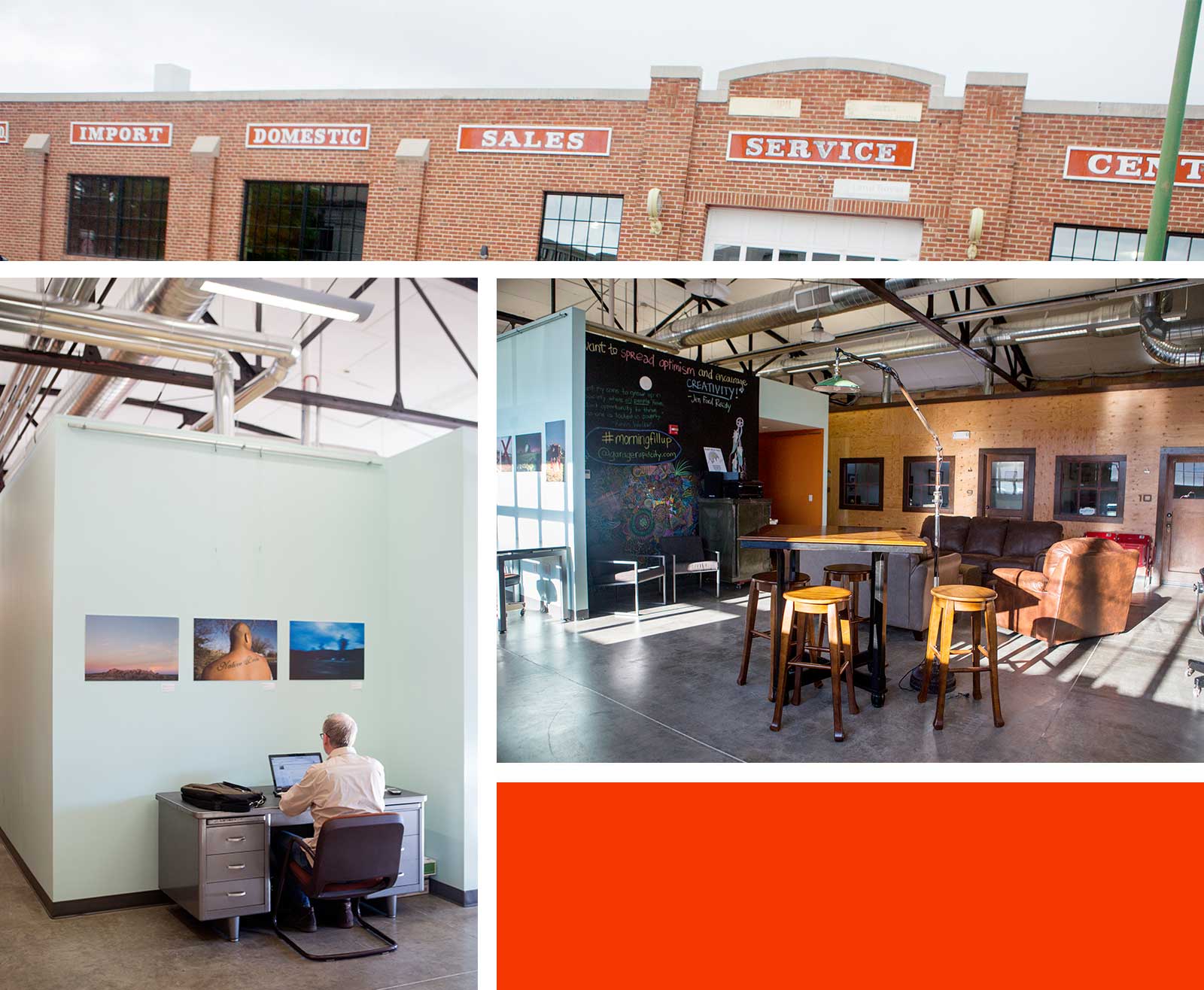
Current membership includes nonprofits, lawyers, an accountant, consultants, a government agency, and The Numad Group.
The space is designed to encourage collaboration and networking. The enclosed offices have windows that open to the common area which is populated with couches, a kitchen, and art exhibits.
“It’s a great business atmosphere,” says CPA Brad Benham. “There’s a lot going on here that keeps traffic coming in and out.” Brad has picked up new clients from people who came to The Garage for another reason, like receptions, music concerts, and documentary films.
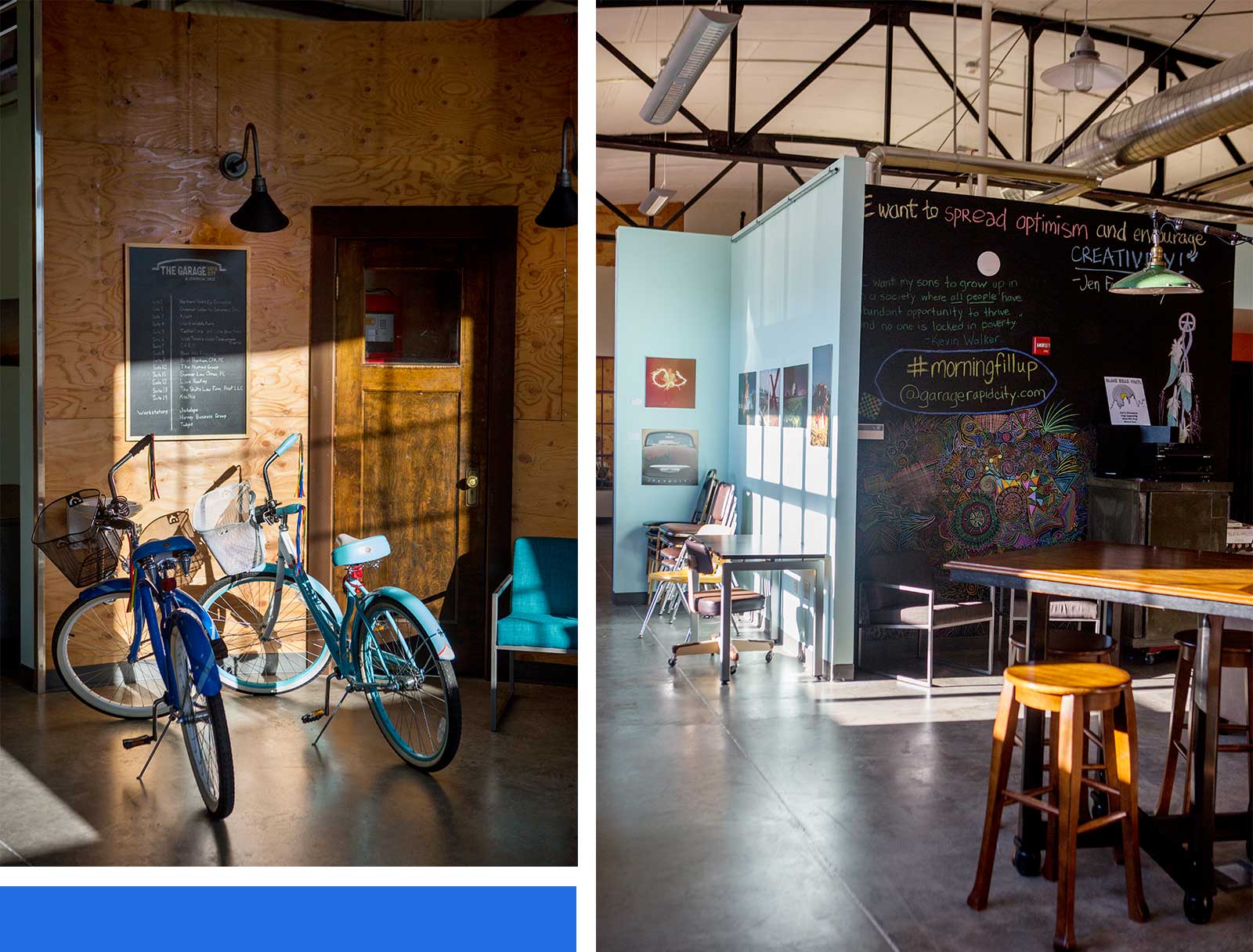
“If there’s a way for the community to promote ideas from different perspectives and to say ‘Yes’ and to walk with whoever has an idea for a little bit at least to test it out, then our whole community gets better,” says Matt. “And how do you do that? You can do it by having a space like The Garage.”
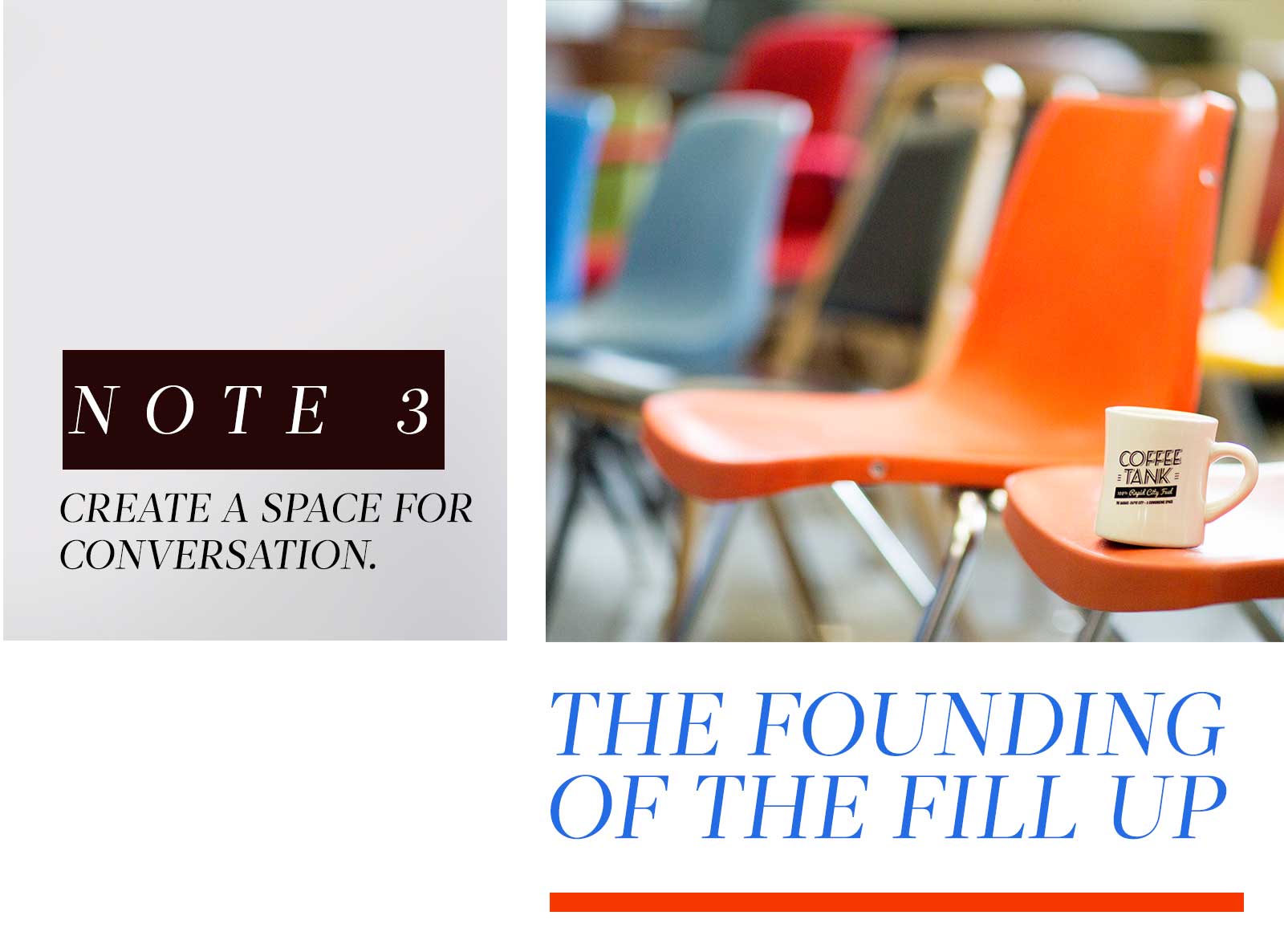
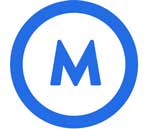
att Ehlman shuffles 5 x 7 inch index cards like a talk show host. He pensively takes a draw of coffee as his guest responds. The two men sit at a pub height table populated by six coffee cups. This morning about forty people are seated in vintage chairs of various styles and colors, all collected from offices across Rapid City.
Recently placed on the National Historic Register, the interior décor features high ceilings with exposed girders and duct work. Repurposed building and auto parts take on a new life as office partitions and furnishings.
Dressed in black sport coat, a tieless blue shirt and faint plaid tan pants, Matt asks questions softly, nodding slightly to affirm the answers.
Today Matt is speaking with Dr. Tom Jackson, president of Black Hills State University in Spearfish, S.D. Jackson, a descendent of African American, Native American, Filipino and Irish ancestors, was the first person in his family to graduate from college. Named to his post in 2014, he is the first person of color to serve as president of the college, which began in 1883 as Dakota Territorial Normal School. A half hour into the conversation the sun rises above the roof of a neighboring building and streams through the industrial panes of the renovated Depression-era auto repair shop, bathing Matt and Dr. Jackson in a soft orange frame of light.
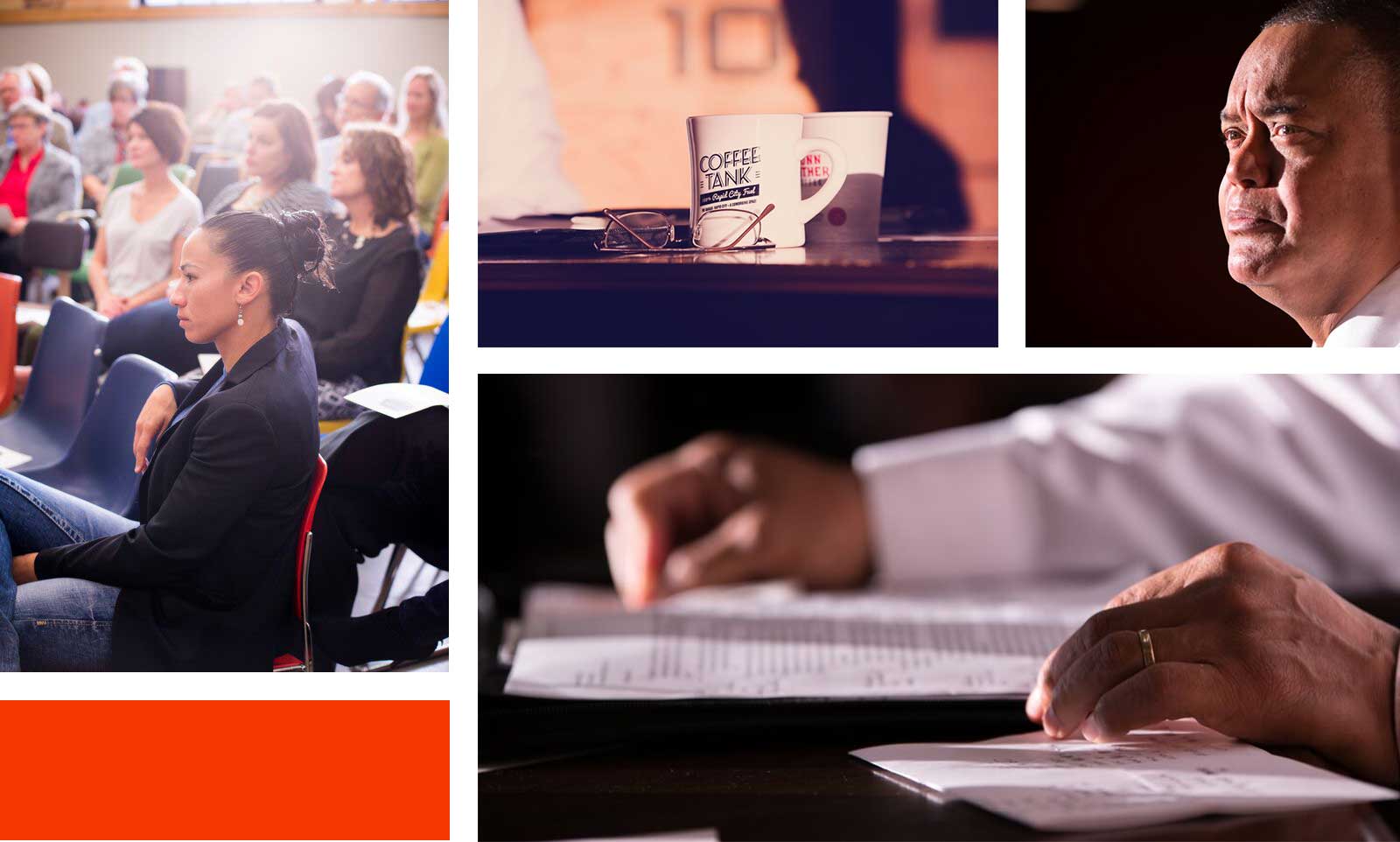
It’s 7:30 in the morning and this is not a TV talk show. It’s part of a monthly conversation series called Morning Fill Up. The series began over a year ago to discuss philanthropy, civil society and community, subjects dear to The Numad Group.
“It is an opportunity to have conversations with good people doing good things creatively and collaboratively,” Matt explains in his standard intro. “The format is a conversation, not a presentation; a dialogue, not a pitch; two chairs, a table and a community of interested people.”
The talks, sponsored by the Bush Foundation and The Numad Group, bring local, regional, and national leaders to Rapid City for a 24-hour blitz of conversations and collaborations. Others who have joined Matt for an early morning chat include Assistant Secretary of the Interior for Indian Affairs Carl Artman, Oprah Winfrey’s Harpo Studios television producer Colleen Rose Dunnegan, and South Dakota Governor Dennis Daugaard. Last Thursday, he sat down with Oglala Sioux Tribe President John Yellow Bird Steele. Former New Mexico Congresswoman Heather Wilson has also been a Morning Fill Up guest. Two years ago she became the first female president in the 130-history of South Dakota School of Mines and Technology, an engineering college in Rapid City with 78 percent male enrollment. She returned as an audience member. “I came back to listen to others because the questions posed were thought-provoking,” said Wilson. “Not canned or gotcha questions, as we have come to expect from radio and television.
“This is, perhaps, what community conversations can be.”
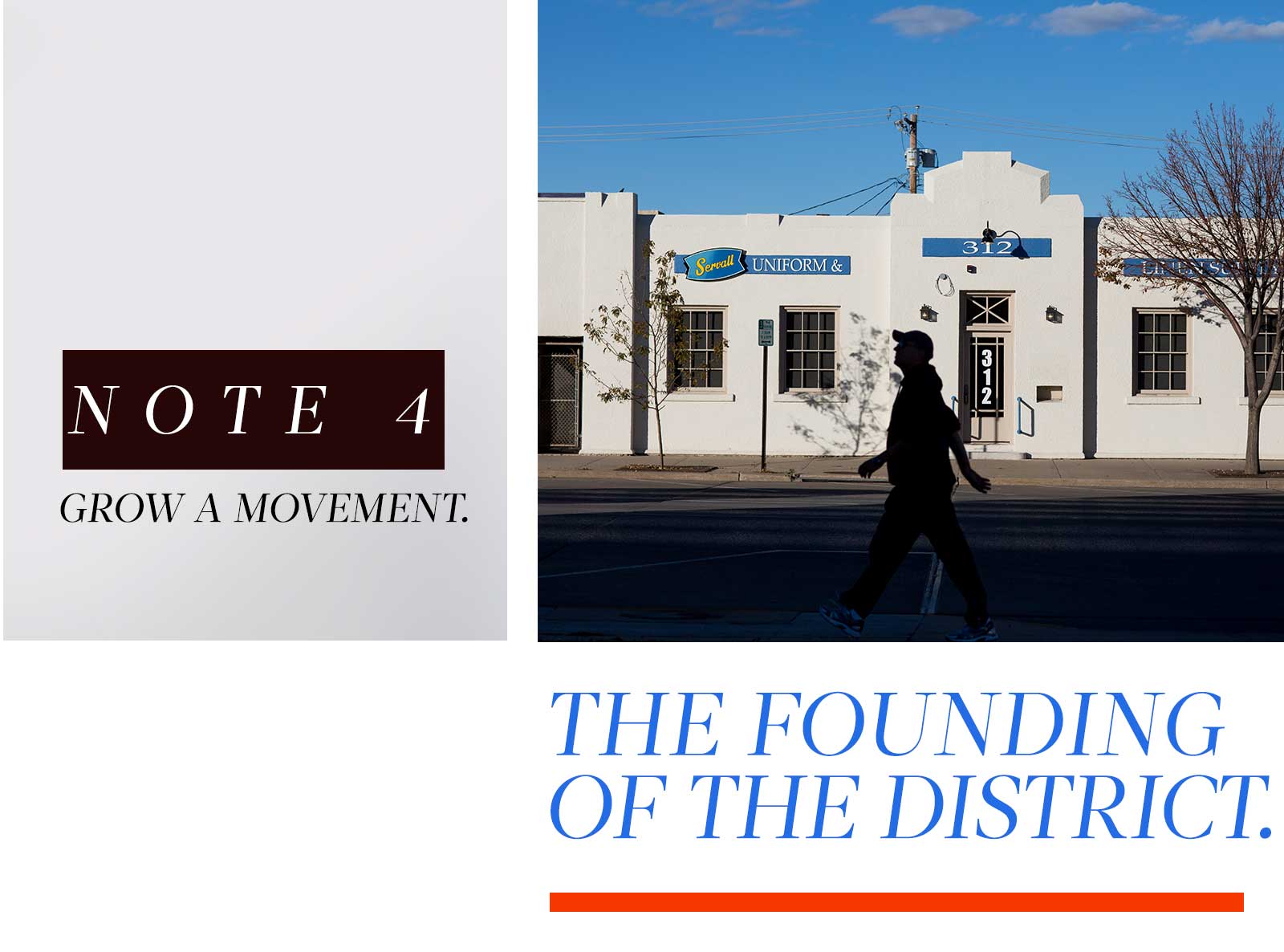
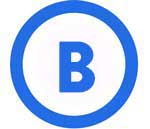
arefoot Dance Studio owner Andrea Schaefer met Matt going to events at The Garage, which is a block from her business that she started in an old feed store. Both buildings are located just outside the central business district which has been experiencing in the last five years a renaissance that has attracted new shops, eateries, public art, and events.
Fifth Street, one of the city’s busiest north-south arteries has become a de facto boundary to the revitalization’s expansion. Andrea and Matt along with some other owners of small business in their neighborhood like a vintage record shop, a start-up brewery, and a VFW post would like to see that change.
“We’re saying, ‘Hey, we’ve got something really cool going on here,’” says Andrea. “We’re wondering how can we get people across 5th Street when they’re downtown. Matt has been a key in getting us all together at the table to network and discuss how to do that.”
“Matt is a community builder without being a self-promoter,” says School of Mines President Wilson. “It’s not about him, or even his organization. He links people and builds capacity for all. That is quite rare, I think.”
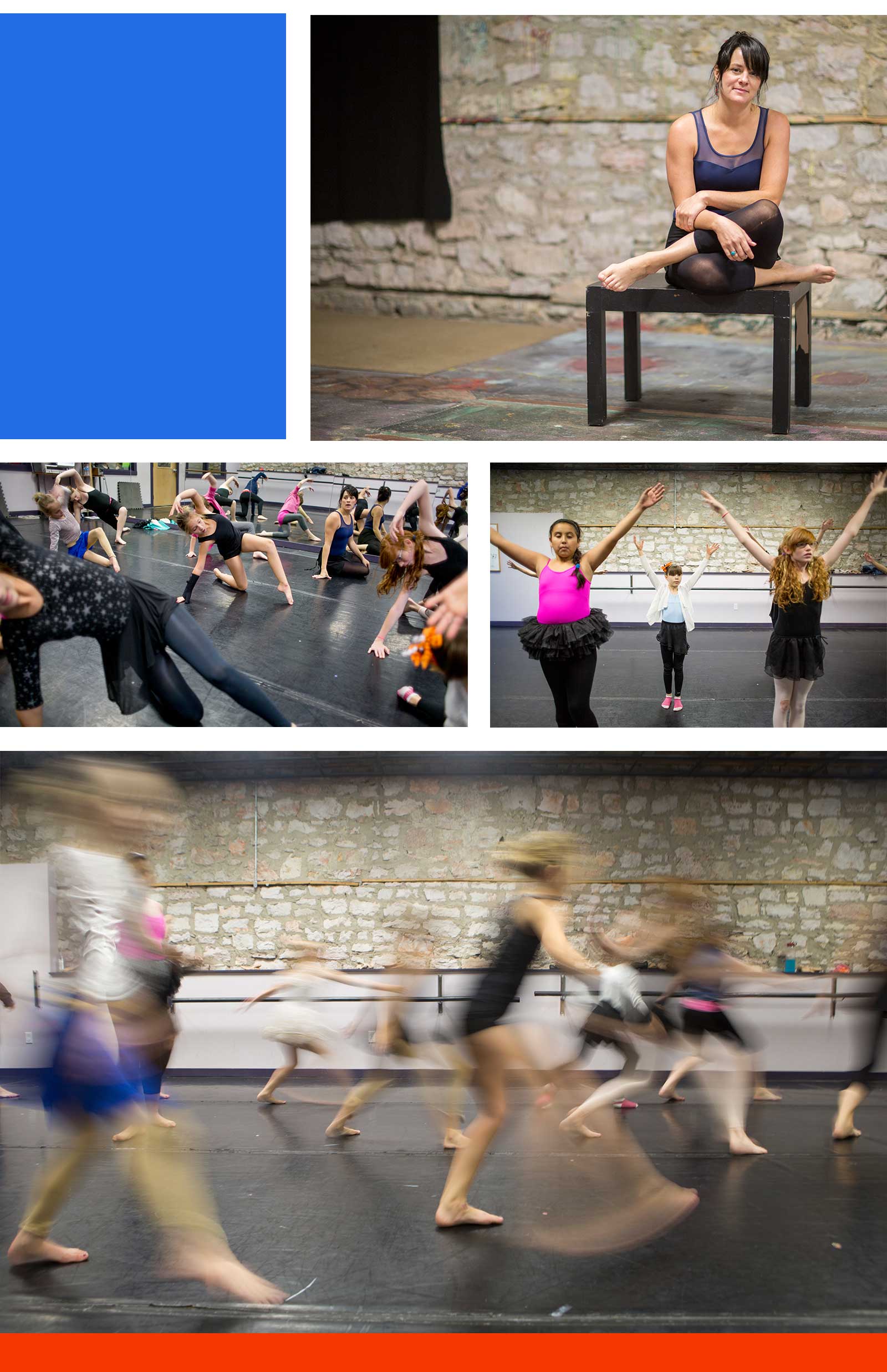
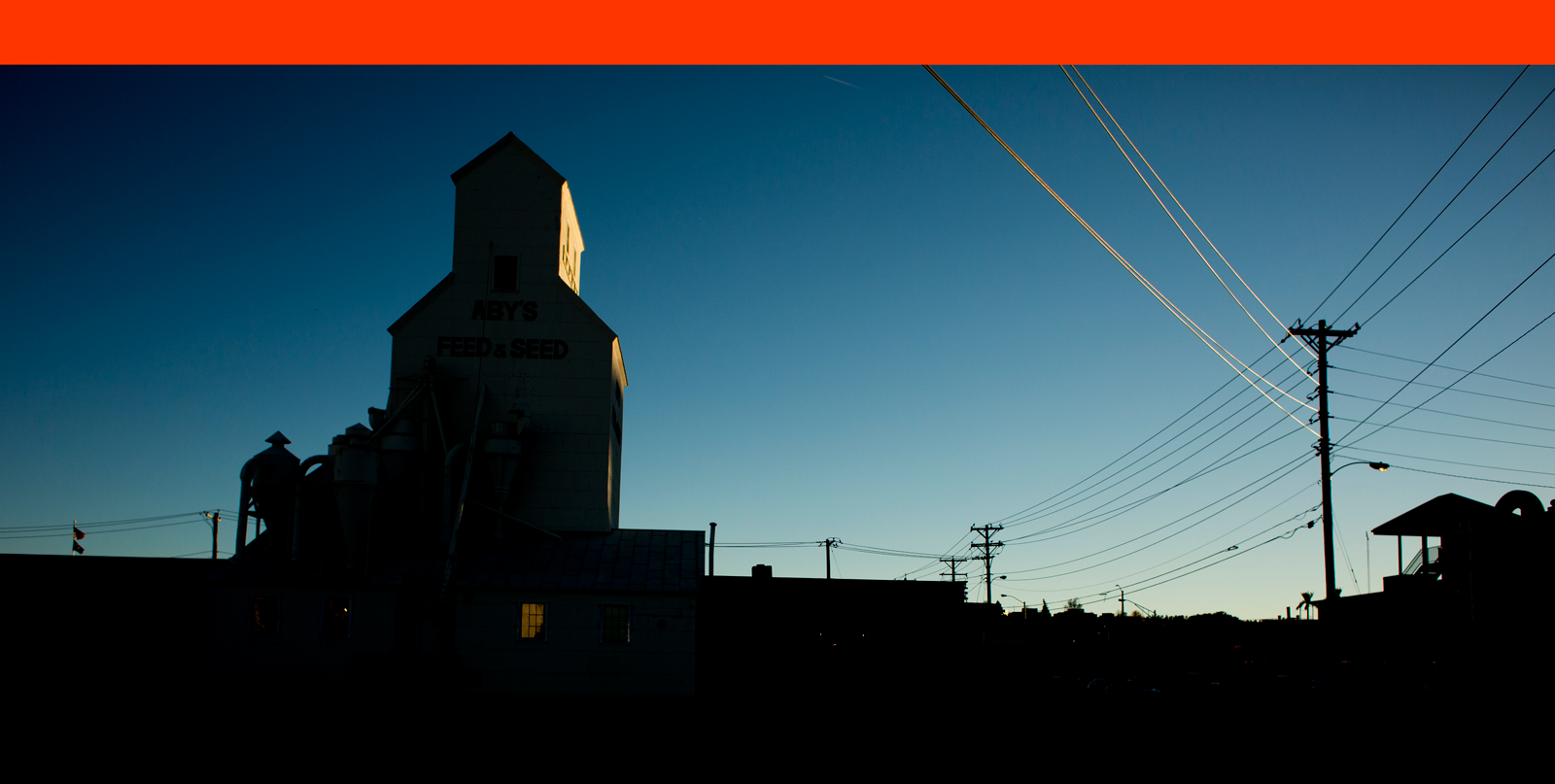
It’s no surprise that Matt chose to make The Black Hills his home. This is a community that prioritizes picking up the phone or networking at a Chamber of Commerce breakfast over sending an email. It’s about one-on-one, face-to-face interactions. It’s a place that touts rugged individualism and a sense of community all at the same time. Because the individual is in the collective and they take care of each other. Matt is but one of many in search of something good. And they’ve created it together.
“Ultimately, I, we, believe that people are good and that people want to be a part of things that are good; that in all the chaos of life and the haziness in society we’re searching for connection.” — Matt
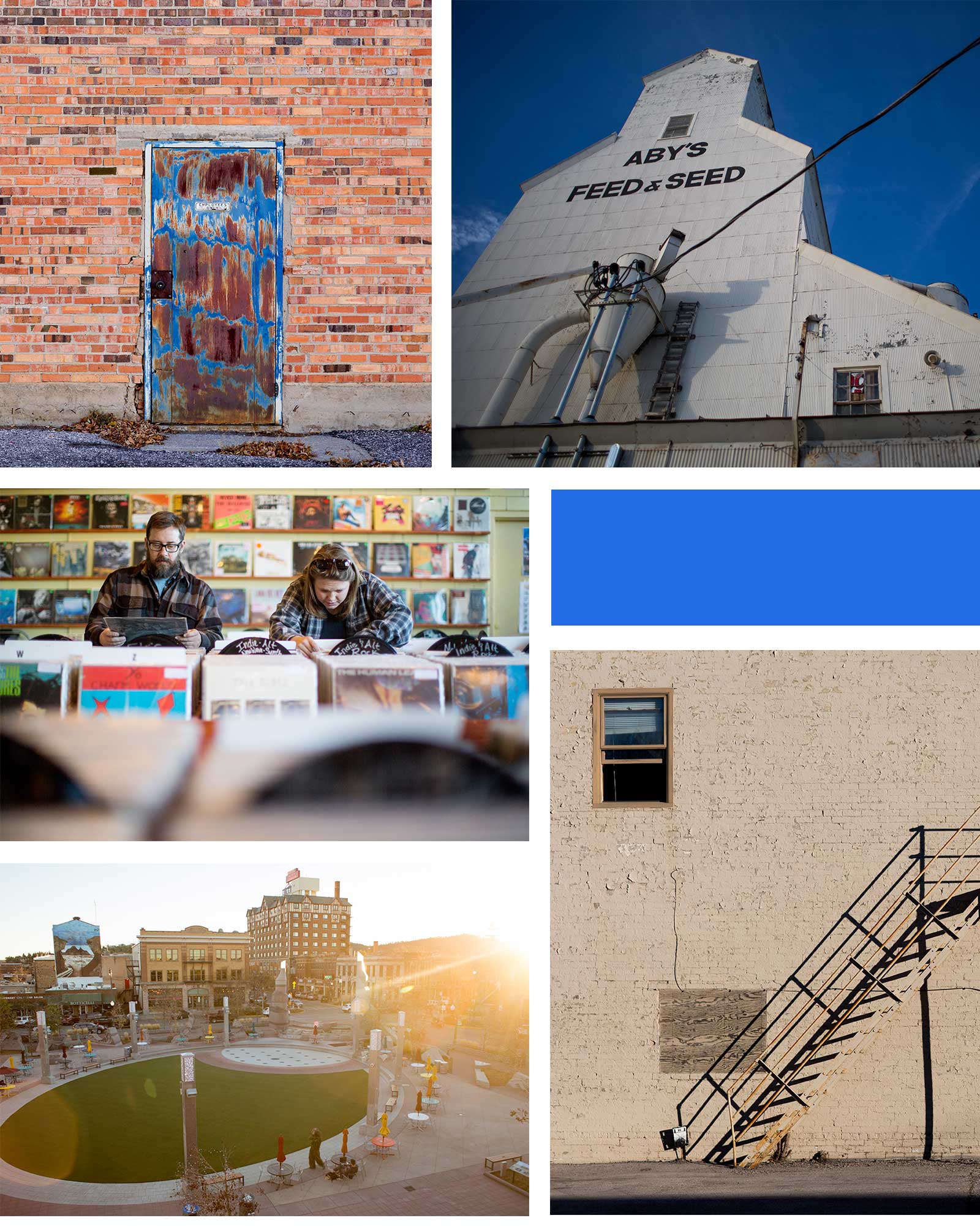
Matt Ehlman doesn’t really want you to meet him. He wants you to meet everybody else. He’d rather you connect face-to-face with the nonprofits, business owners, musicians, politicians, university presidents, and other folks in the Black Hills of South Dakota, around the United States, and across the seas that he works to bring together. Because, remember: people really are hungry to become a part of something that’s good. And when they join in, communities become better, stronger places.
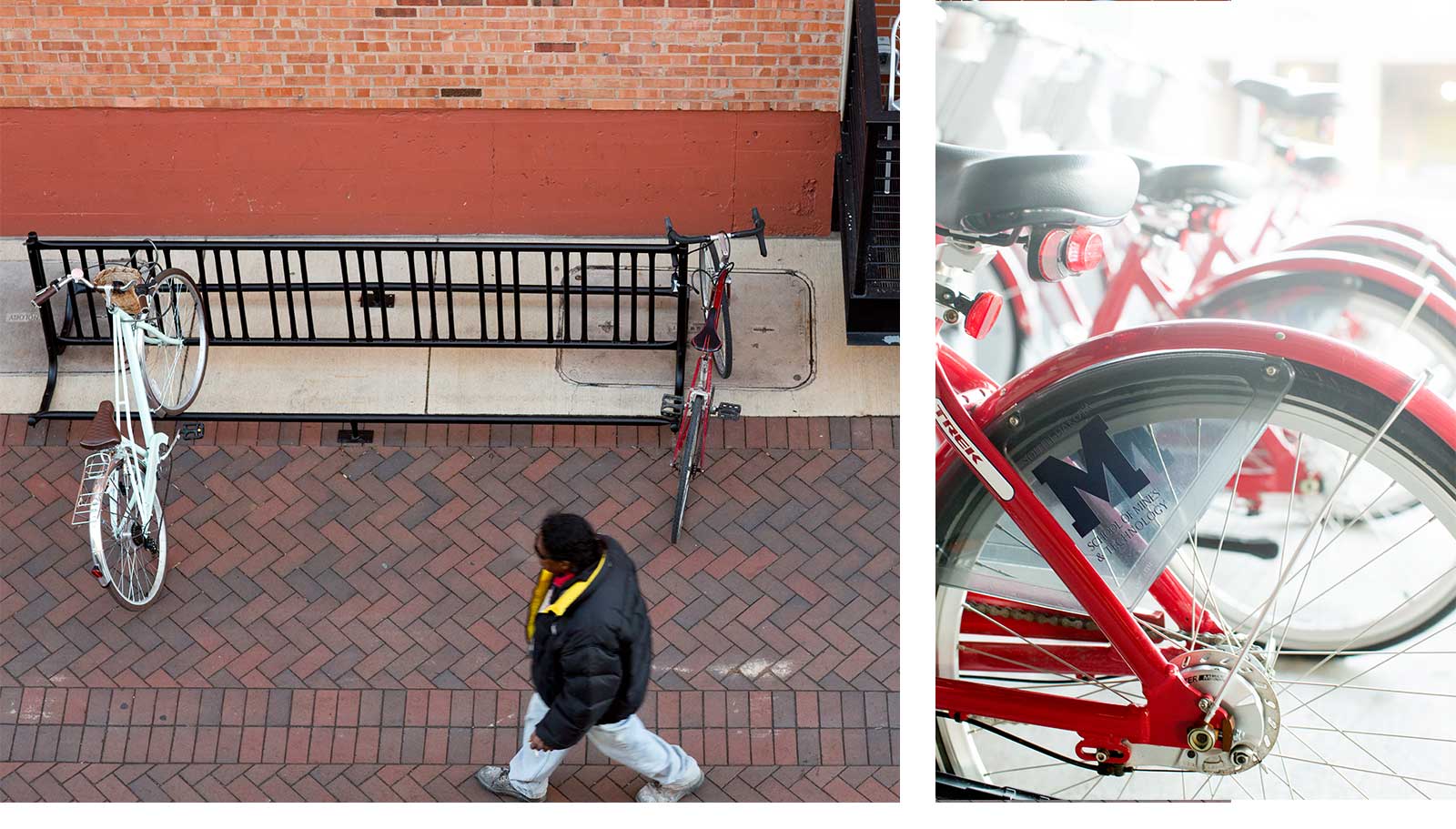
Pretty Simple.
Pretty Good, huh.
